Agriculture & Environment
Mak-CAES, UNBS Launch Edible Insect Products & Standards
Published
3 years agoon
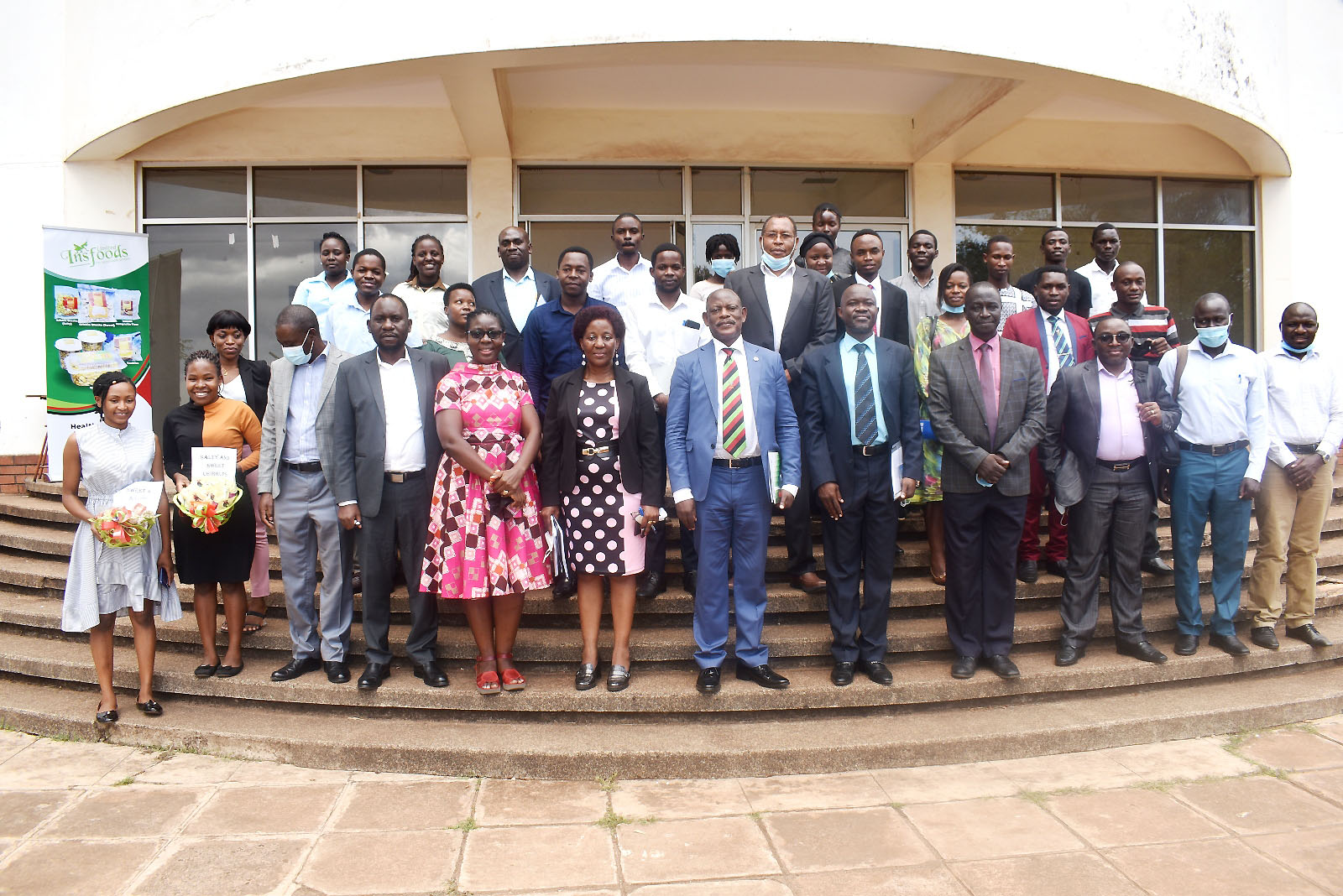
Edible insects have the potential to fill the nutrition and income gaps in Uganda and Kenya. They are rich in protein and cheaper to manage. However, edible insect value chains are under-developed yet the demand is high. Business enterprises for rearing and processing quality insect food products do not exist and the business potential has not been evaluated.
Through a project titled INSBIZ – “INSect-based agriBIZiness for Sustainable grasshopper and cricket production and processing for food in Kenya in Uganda” researchers from the Department of Food Technology and Nutrition, College of Agricultural and Environmental Sciences (CAES), Makerere University in collaboration with partners from the International Centre of Insect Physiology and Ecology (icipe) set out to improve the profitability and nutritional benefits of edible insects.
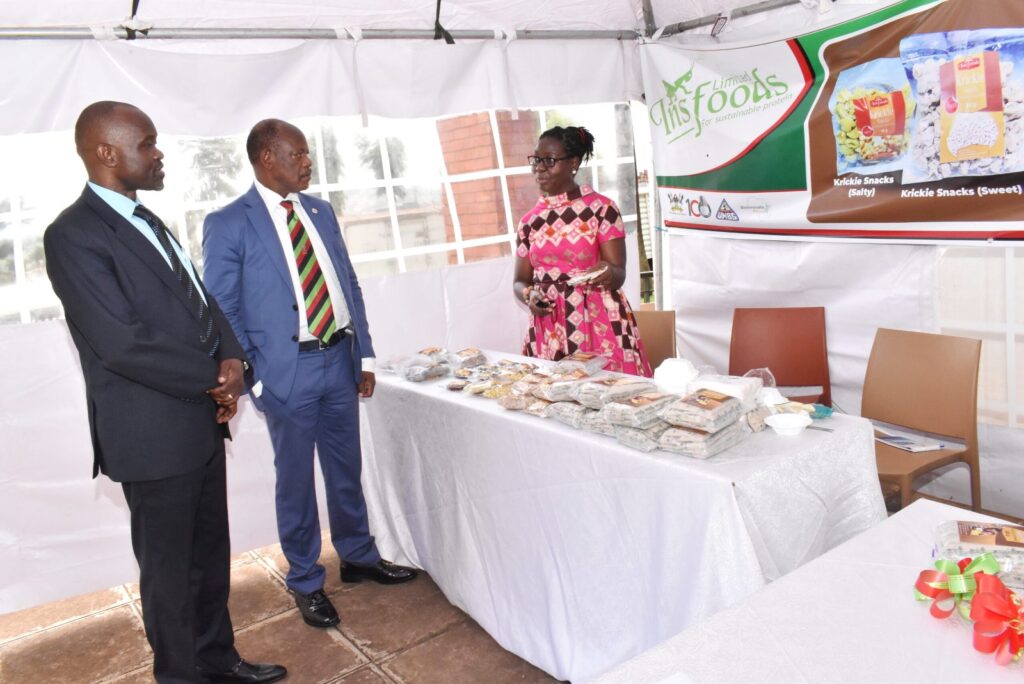
Objectives of the project
The development objective of the project was to contribute to improved food and nutritional security, job creation and income generation, and reduction of the gender gap for the most vulnerable groups in East Africa in general and specifically in Kenya and Uganda through edible insects production and processing. Specific objectives included; (1) assessing the market size and testing the market performance of insect-based foods; (2) adapting and piloting of mass rearing protocols for crickets and grasshoppers; (3) developing, characterizing and commercializing insect-enriched food products; and (4) creating a favourable enabling environment for insect-based food through policy/standards, advocacy and awareness creation.
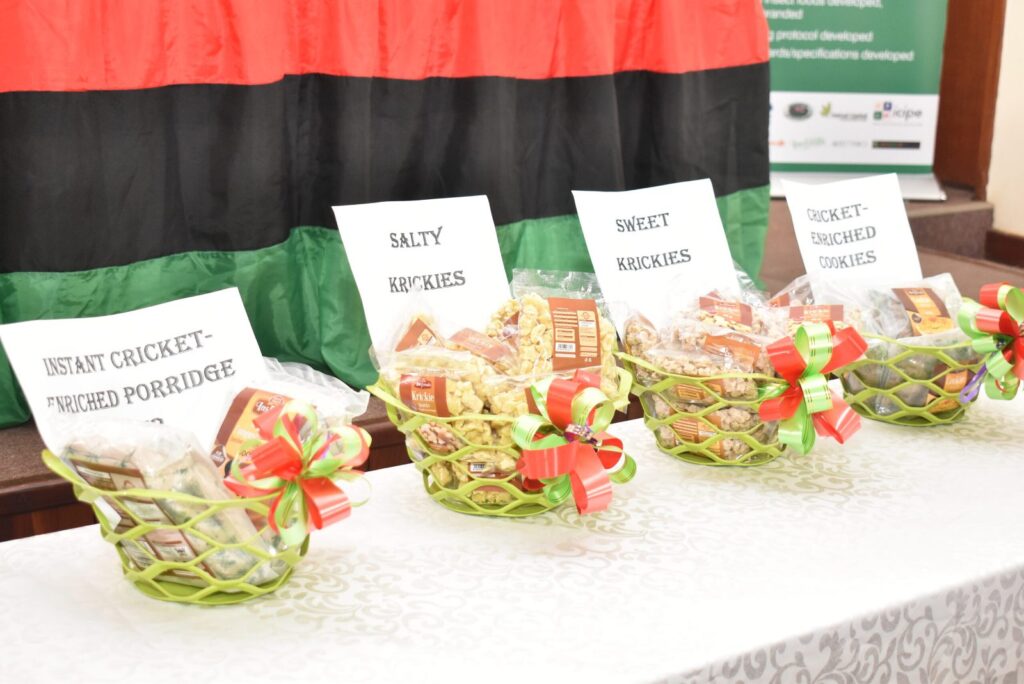

The three-year project funded by the Swedish International Development Agency (SIDA) through the BioInnovate Africa Programme Phase II was headed by Dr Dorothy Nakimbugwe, an Associate Professor in the Department of Food Technology and Nutrition at CAES. Other members on the project included Dr. Geoffrey Ssepuuya from the same department, and Dr. Jackline Bonabana-Wabbi from the Department of Agribusiness and Natural Resource Economics.
Project closing meeting
During the project closing meeting held in the School of Food Technology, Nutrition and Bio-Engineering Conference Hall on 28th March 2022, Makerere University together with Uganda National Bureau of Standards (UNBS) launched edible insect products and standards for the enterprise. The event was presided over by Makerere University Vice Chancellor, Prof. Barnabas Nawangwe and Uganda National Bureau of Standards Executive Director, Mr. David Livingstone Ebiru. It was witnessed by the Principal of CAES, Dr Gorettie N. Nabanoga; the Commissioner in charge of Entomology at the Ministry of Agriculture, Animal Industry and Fisheries, Mr. Gidudu Masaba Ambrose; and representatives from icipe led by Dr. Chrysantus Mbi Tanga.
The products launched included shelf-stable, safe and well packaged grasshopper products, cricket enriched flours, snacks, and cookies enriched with crickets.
Project outcomes
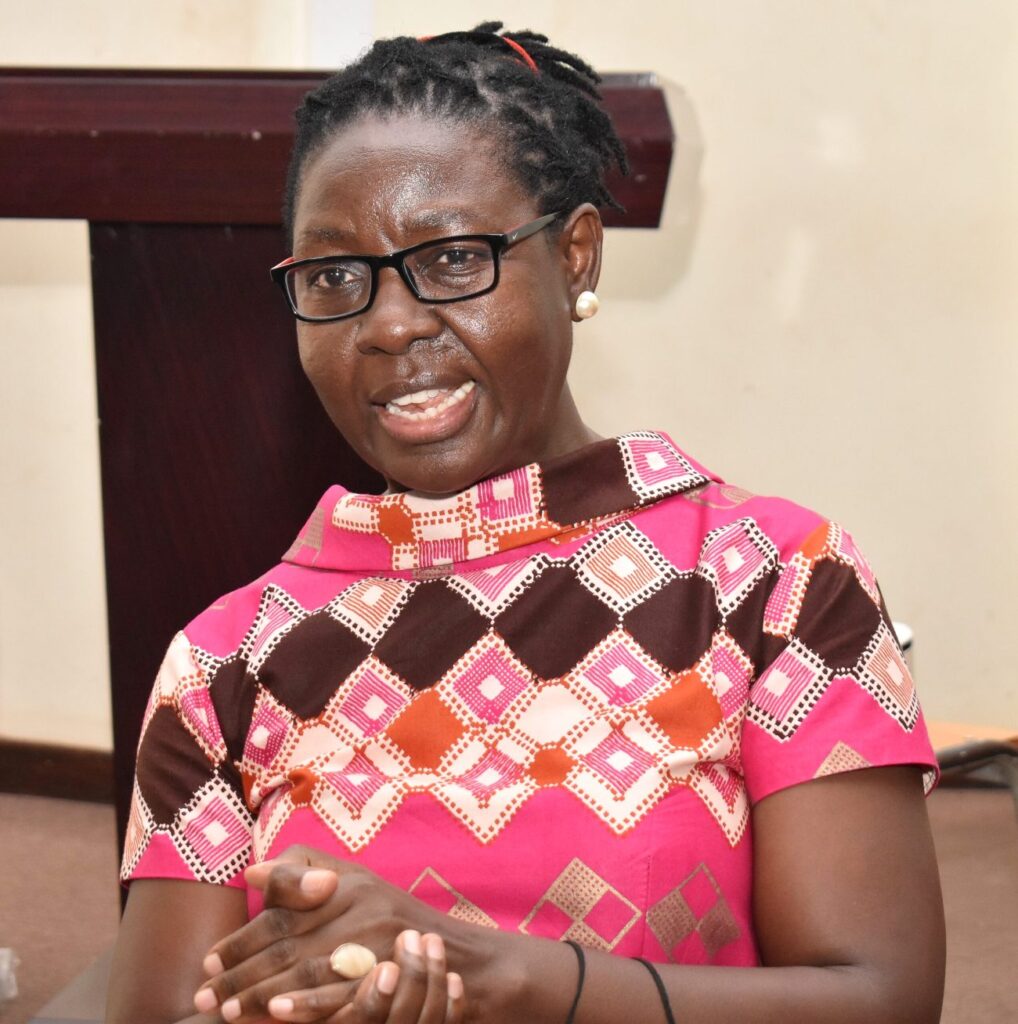
Addressing participants, Dr Nakimbugwe said the products would largely reduce nutritional challenges. “The majority of our people are not able to improve their diets because the foods that are high in protein, vitamins and minerals like chicken, beef and fish are expensive. We turned to insects because they address some of those problems. They are more nutritious than the conventional animal proteins like chicken, beef and fish. In addition, they take a shorter time to grow. Crickets grow in a matter of weeks compared to the other livestock. They can be harvested within 4 to 7 weeks. They also have a high feed conversion. The amount of feed you need to produce 1kg of insect is only about one and half kilogrammes. When it comes to the producing 1 kg of chicken, the amount of feed increases to about 5 kgs. If you are to produce 1 kg of beef, the amount of feed you need is 50kgs. The insects convert feed rapidly and efficiently and produce protein faster and of the same quality. They also require less space for rearing and present an opportunity to close the food and nutrition gap especially around proteins, vitamins and minerals,” she explained.
According to Dr Nakimbugwe, the project also sought to formalize the sector to make it more profitable. “For a long time, we have not had a certified product on the market because the Uganda National Bureau of Standards did not have a standard. The sector has been very informal. Insects are sold on streets and not controlled. In this project, we wanted to improve that situation. Together with the UNBS, we developed a standard for Uganda which was approved and is now available for use. For the first time you will be able to find certified insect products on the Ugandan market,” she noted.
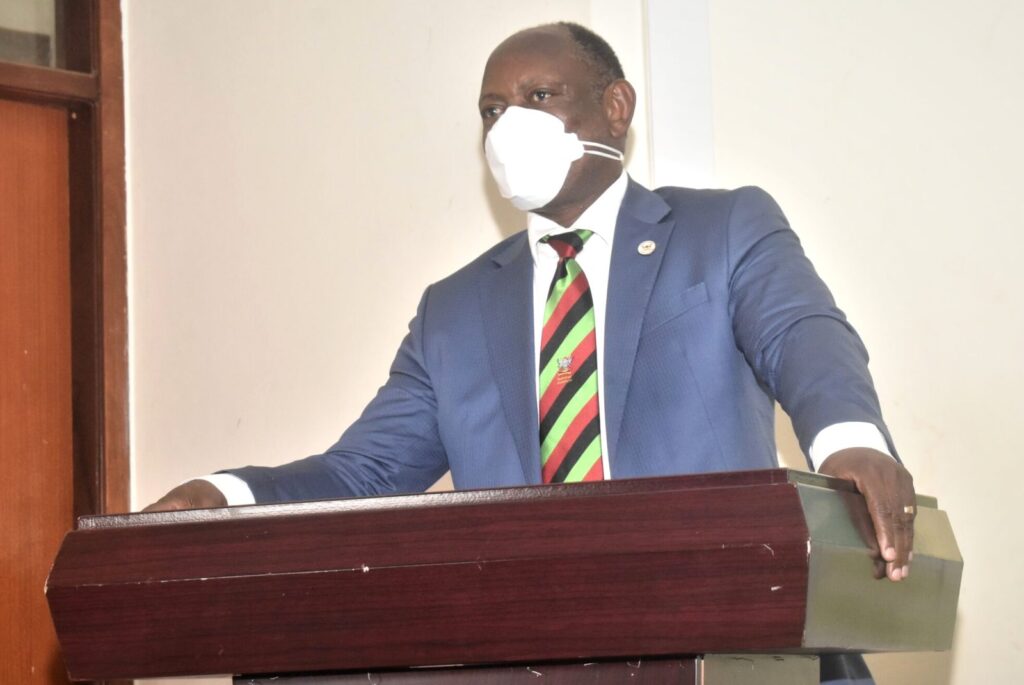
The project also aimed mitigate the effects of climate change and greenhouse emissions that are high for animals and much lower for insects.
Other contributions included building capacity for research in this field. “The research in insects for food and feed is fairly new compared to other fields so we needed a lot of capacity development. The project was able to train the farmers and harvesters on handling of insects. We also trained students from PhDs, to MAs, undergraduates, fellows and technicians. This was necessary to sustain the research and development of this fairly noble field.”
Under the project, the researchers developed a compound feed to sustain large scale production of the insects. “If you are going to do commercial production, it is important that you have a standardized feed. In this development, we were very careful to exclude input that are also human food like silver fish and soy. Most of the feed in Uganda is in competition with the human food chain. In the project we were careful to avoid that. We formulated feed using the Black soldier fly larvae,” she explained.
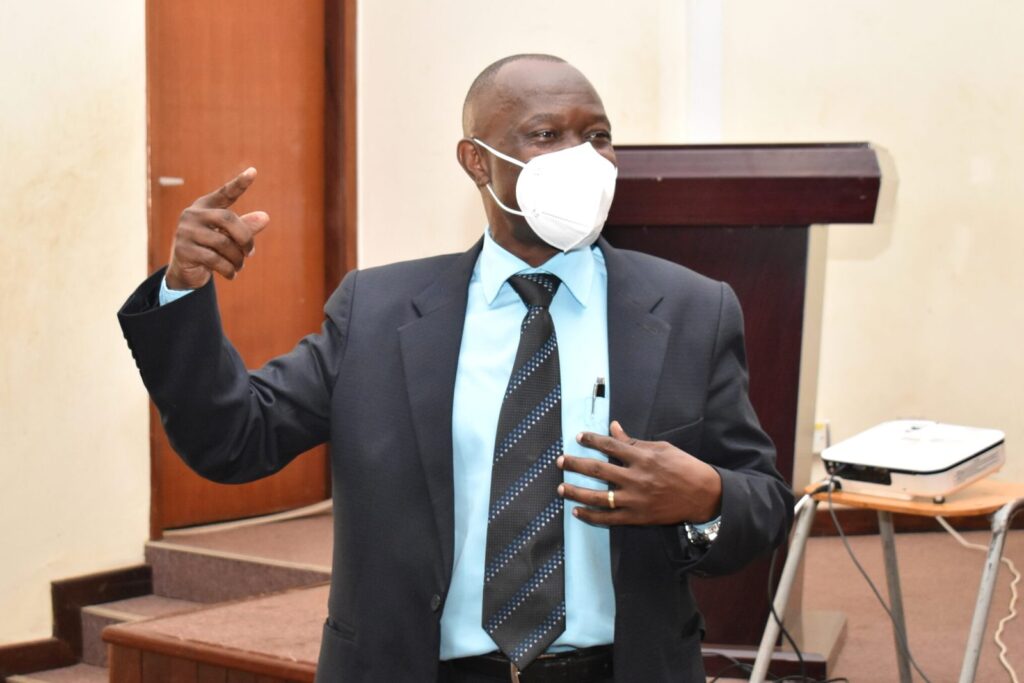
Other outputs included strengthened edible insect value chains – cricket farmers linked to markets; large scale production, processing and marketing of cricket and grasshopper products; approved insect based food standards in Kenya and Uganda; improved grasshopper trapping method (cost-effective, sustainable and safer); more sustainable cricket rearing – using developed feed and container prototypes; and improved food and nutritional security through increased diversity of available nutritious and safe edible insect foods. All the products developed have shelf-life of over 6 months. For the grasshopper product, this implies all-year availability to consumers.
The project also contributed to the improvement of consumer health and safety through consumption of UNBS (and KEBS)-certified insect food products; increased incomes as a result of lower post-harvest losses for cricket farmers and grasshopper harvesters through use of improved post-harvesting techniques to maintain quality and safety; increased jobs creation and job security through improved capacity of young researchers, technicians and actors along the edible insects’ value chains; higher profile of and support for insect foods due to increased public awareness of their nutritional and commercial importance through various programmes.
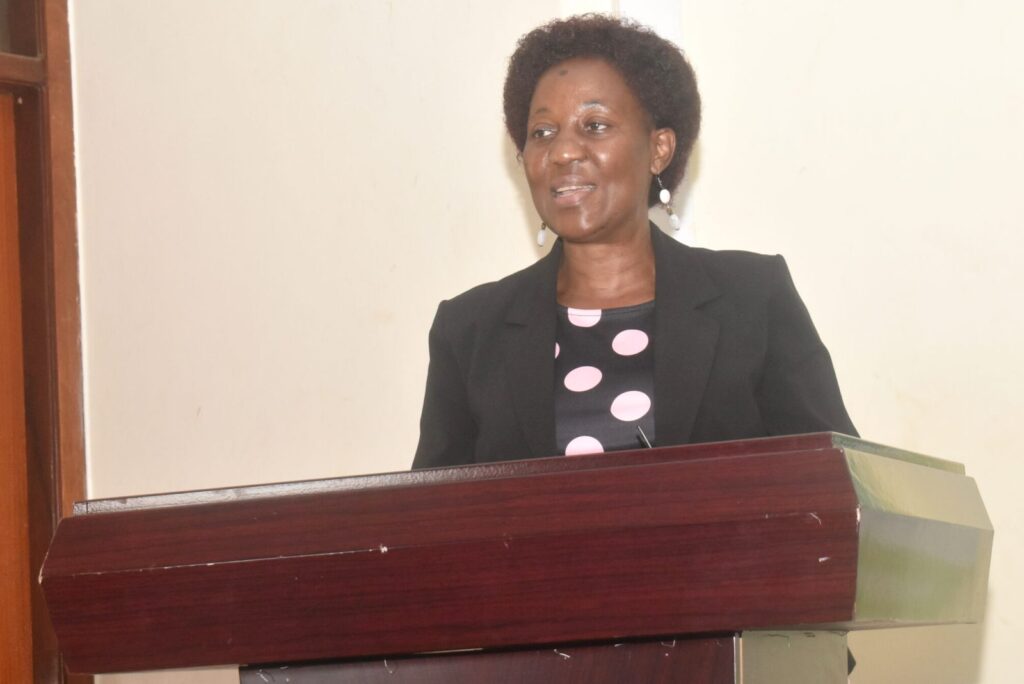
During the event, a cricket farmer from Masaka shared her experience with the enterprise. She noted that with support from the project, cricket rearing had greatly transformed her life and is now able to pay fees for her children. The project supports over 50 cricket farmers in Masaka.
Remarks by the Vice Chancellor
In his remarks, Makerere University Vice Chancellor, Prof. Barnabas Nawangwe applauded the researchers noting that the project would largely address challenges of food insecurity in the country. “Makerere University researchers are taking the issue of food security seriously. In Africa, the biggest challenge we have is feeding the growing population. The traditional foods are not expanding in volume and some are actually disappearing yet we have this abundancy of what you can call the animal world. There are insects that we have traditionally eaten but these are seasonal. There are also insects which we assume we should not eat but are highly nutritious and eaten by people all over the world. Researching into ways of making their products more attractive will largely increase their consumption and boost food security,” he explained. He acknowledged the efforts of the researchers towards transforming Makerere into a research-led University as per the 2020-2030 Strategic Plan.
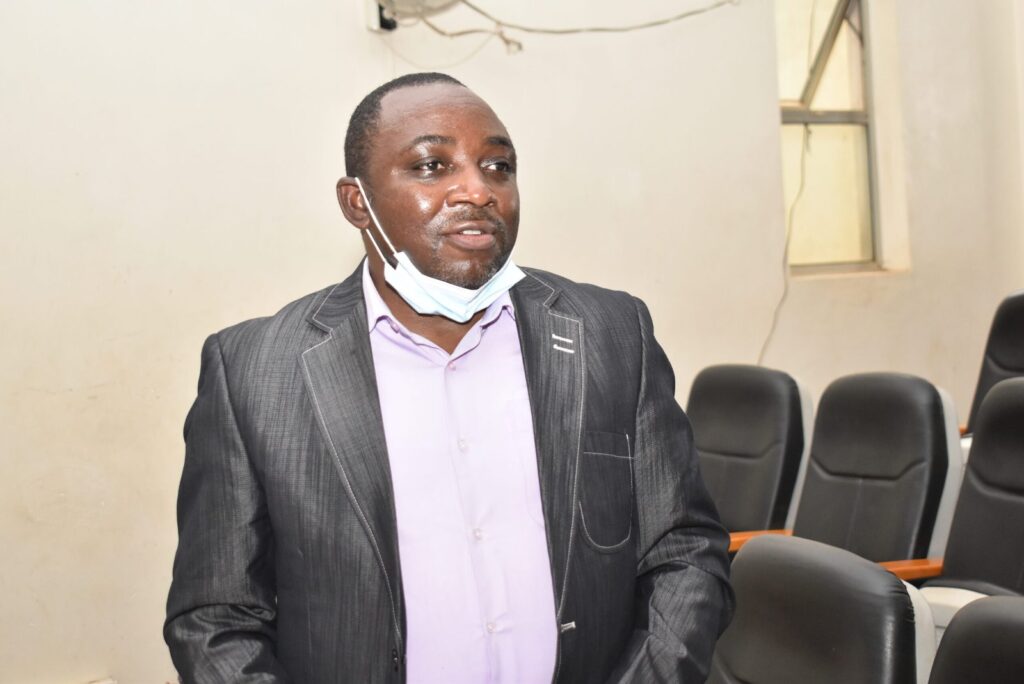
Speaking on the need to move the country to middle income status, the Vice Chancellor urged the researchers to transform the innovations into business enterprises. “We need to move towards setting up companies that will address challenges of unemployment but also boost our economy. With these great ideas, you can become billionaires and less dependent on salary,” he advised. He cautioned researchers to work towards patenting their products.
The Vice Chancellor appreciated SIDA and BioInnovate Africa for the support extended to the project. He also thanked the Government of Uganda for supporting research activities at the University. He urged researchers to continue engaging the government and private sector in projects, noting that research is more impactful when they work together.
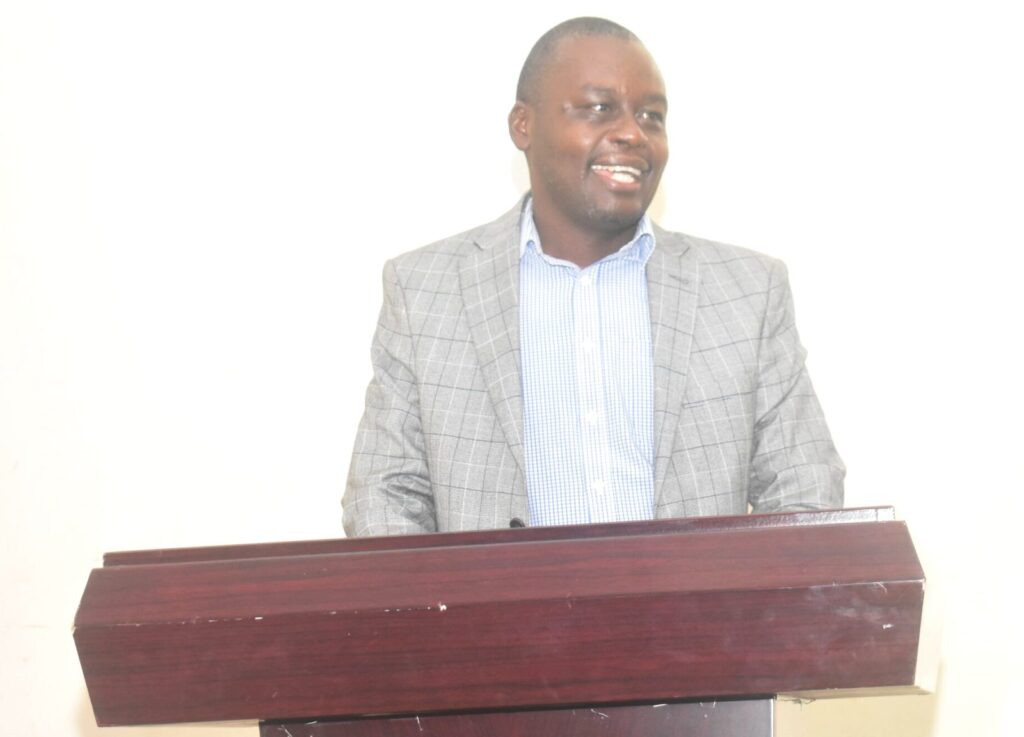
Remarks from CAES Leadership
The Principal of CAES, Dr Gorettie N. Nabanoga applauded the project team for what she described as cutting-edge research that will greatly address challenges of food insecurity, malnutrition and improve food safety. “You have made CAES and Makerere proud with this level of success registered from the project,” she said.
Dr Nabanoga appreciated the development partners and the Government of Uganda for the continued support towards research at Makerere. She also appreciated the Vice Chancellor for the untiring support towards CAES activities.
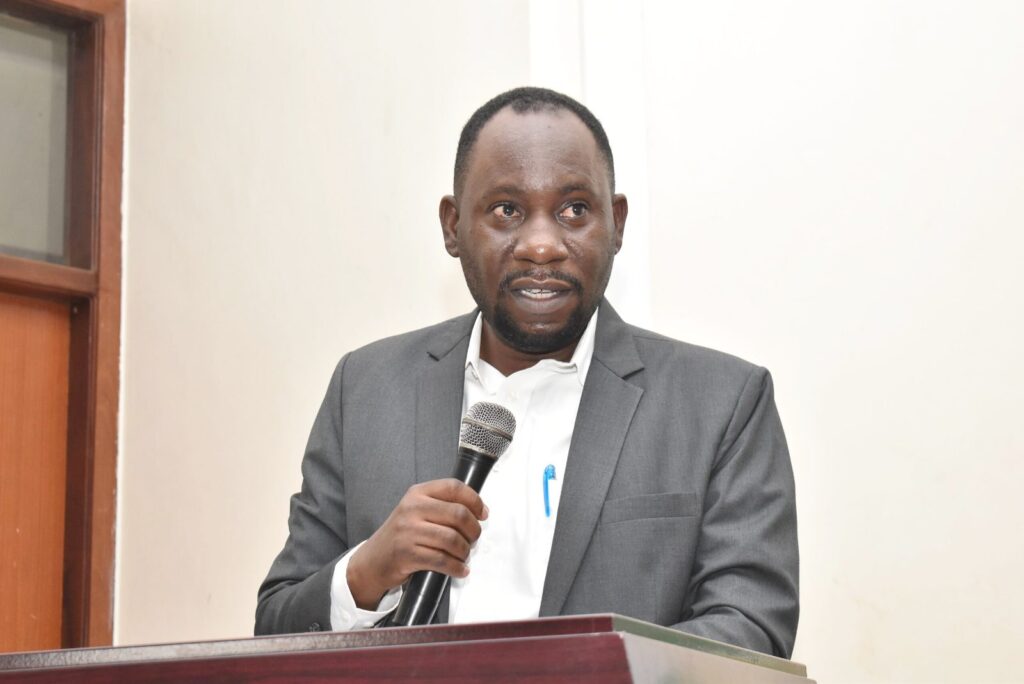
In their remarks, the Dean of the School of Food Technology, Nutrition and Bio-Engineering, Dr Abel Atukwase and the Head Department of Food Technology and Nutrition, Dr Ivan Muzira Mukisa congratulated the research team upon the successes registered. They also appreciated the project partners and funders for the support extended to various programmes at CAES.
The Executive Director of Ugandan National Bureau of Standards, Mr. David Livingstone Ebiru urged the research team to extensively disseminate and rollout the project to other parts of the country. He called for innovative measures of ensuring sustainability of the projects when donor funding stops.
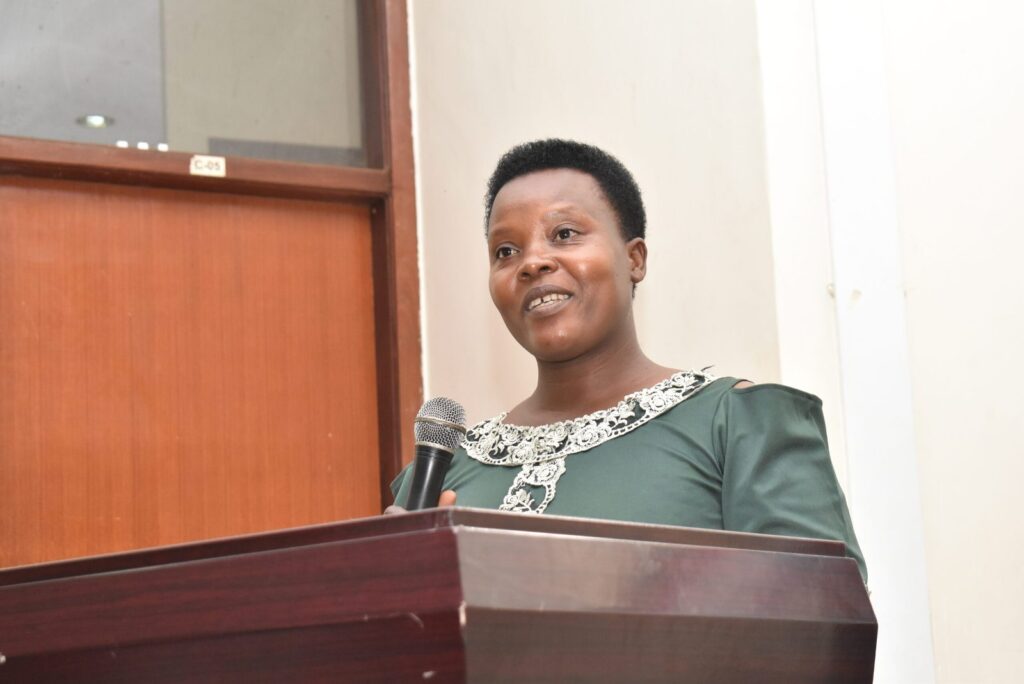
Please see below for presentations from the workshop.
You may like
-
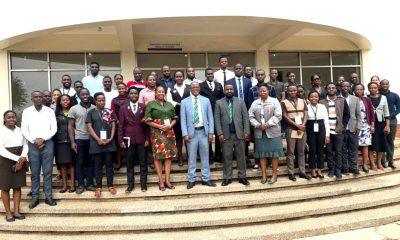

Mak Moves to Revitalize Food Technology & Business Incubation Centre to Drive Innovation & Entrepreneurship
-
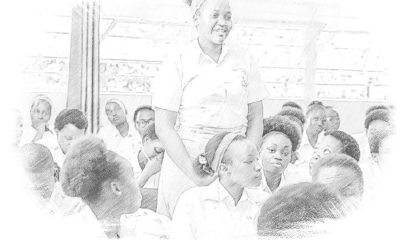

Ugandan Study Flags Girls and Senior Students as a Mental Health High-Risk Group
-
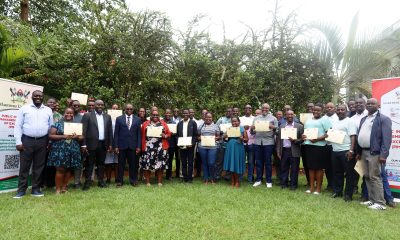

Makerere’s PIM Centre Concludes Training on Certificate of Financial Implications (CFI)
-


Call for Applications: Responsible Conduct of Research (RCR) Training Course
-
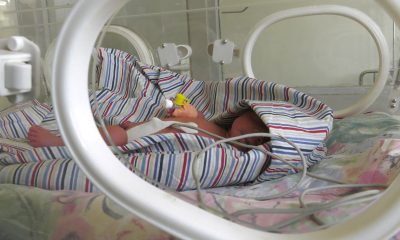

Call For Applications: PhD Fellowship Training Position
-
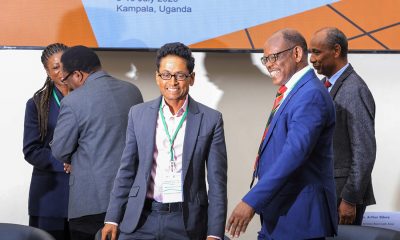

Makerere Hailed for Its Leadership in Health Policy and Knowledge Systems
Agriculture & Environment
Mak Moves to Revitalize Food Technology & Business Incubation Centre to Drive Innovation & Entrepreneurship
Published
1 day agoon
July 14, 2025By
Mak Editor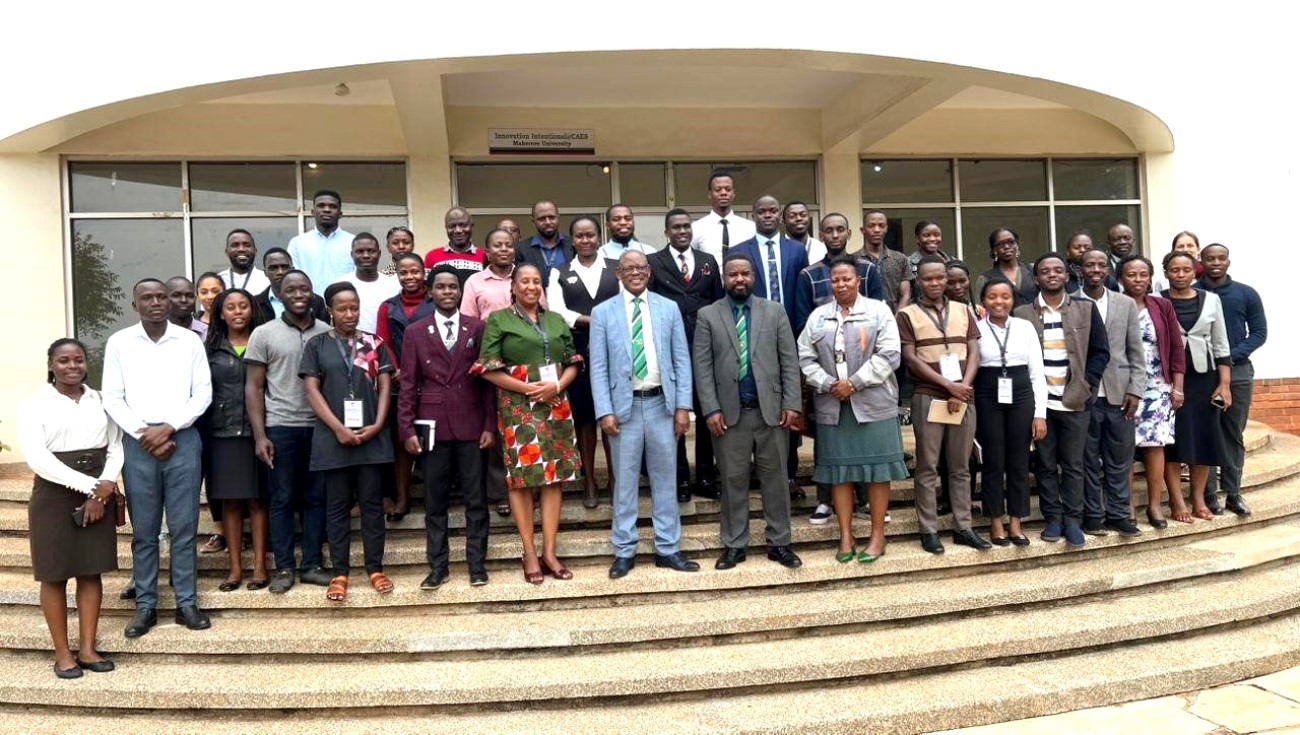
By Ssembogga Derrick
Makerere University marked a significant milestone on Thursday, 10th July 2025, with the launch of the revitalization programme for the Food Technology and Business Incubation Centre (FTBIC). This initiative is poised to position the FTBIC as a national hub for food innovation, student enterprise development, and agro-industrial transformation.
Hosted under the School of Food Technology, Nutrition and Bioengineering (SFTNB) at the College of the Agricultural and Environmental Sciences (CAES), the revitalization of the FTBIC is intended to bridge the gap between academia and industry. “We aim to achieve this by supporting food-based start-ups, enhancing graduate entrepreneurship, and promoting the commercialization of research,” Dr Julia Kigozi, Dean, SFTNB explained. The project receives critical funding from the Makerere University Research and Innovations Fund (MakRIF), which consistently supports innovation and research-based development at the university.
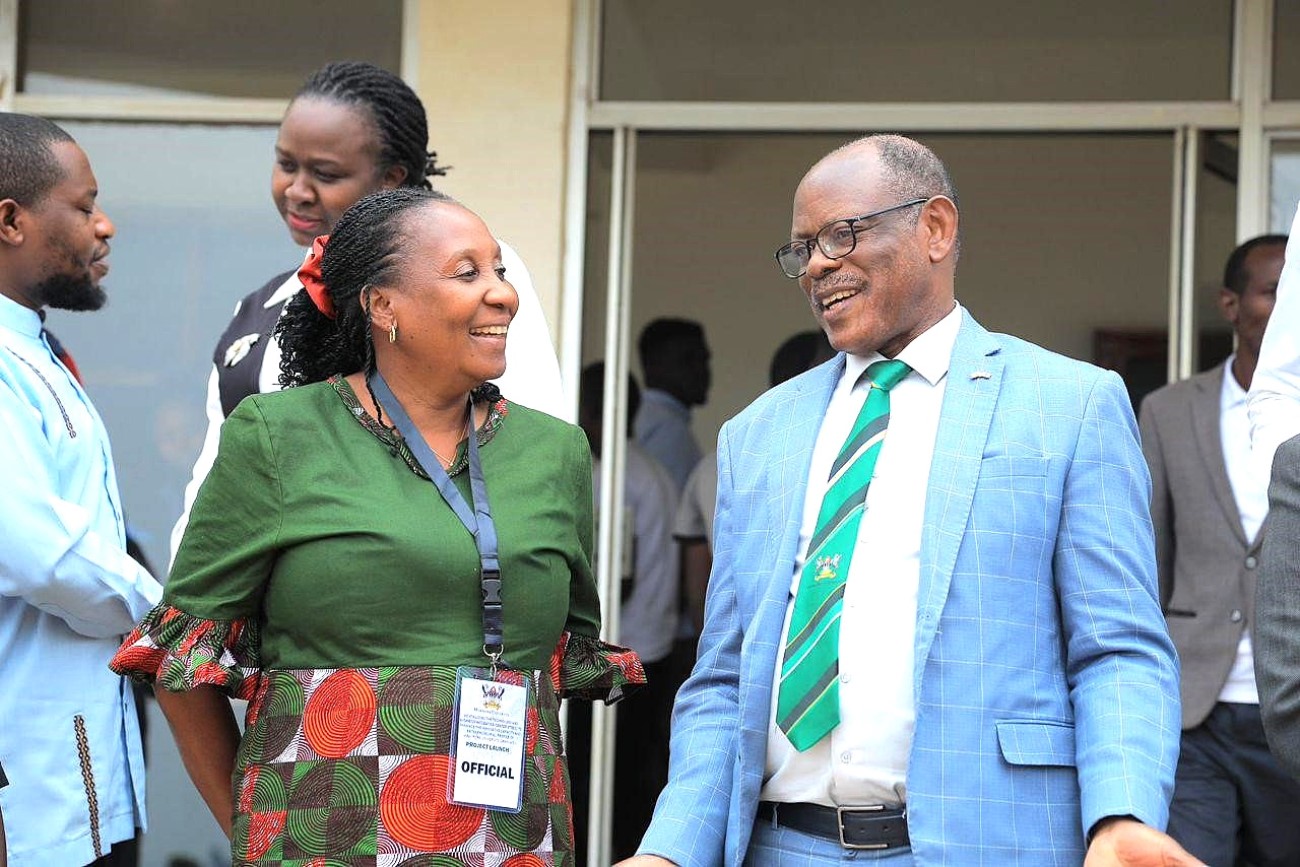
Unveiling a New Strategic Vision
The event, held under the theme “Revitalizing FTBIC to Unlock Innovation and Entrepreneurship Potential among Makerere University Graduates”, marked the official launch of the Centre’s revitalization programme to key stakeholders. It featured the presentation of FTBIC’s new strategic vision and direction, highlighting the commitment of the institution and its partners to fostering graduate entrepreneurship and innovation in food systems. The event also aimed to raise awareness of the Centre’s crucial role in supporting industry, research, and national development.
Participation of stakeholders
The launch attracted a vibrant and diverse audience of over 50 participants. Among the attendees were student representatives; partners from other incubation centers both within and outside Makerere University, including MIIC, UNIPOD, and DGI; as well as representatives from national innovation stakeholders such as Uganda Industrial Research Institute (UIRI) and StartHub Africa.
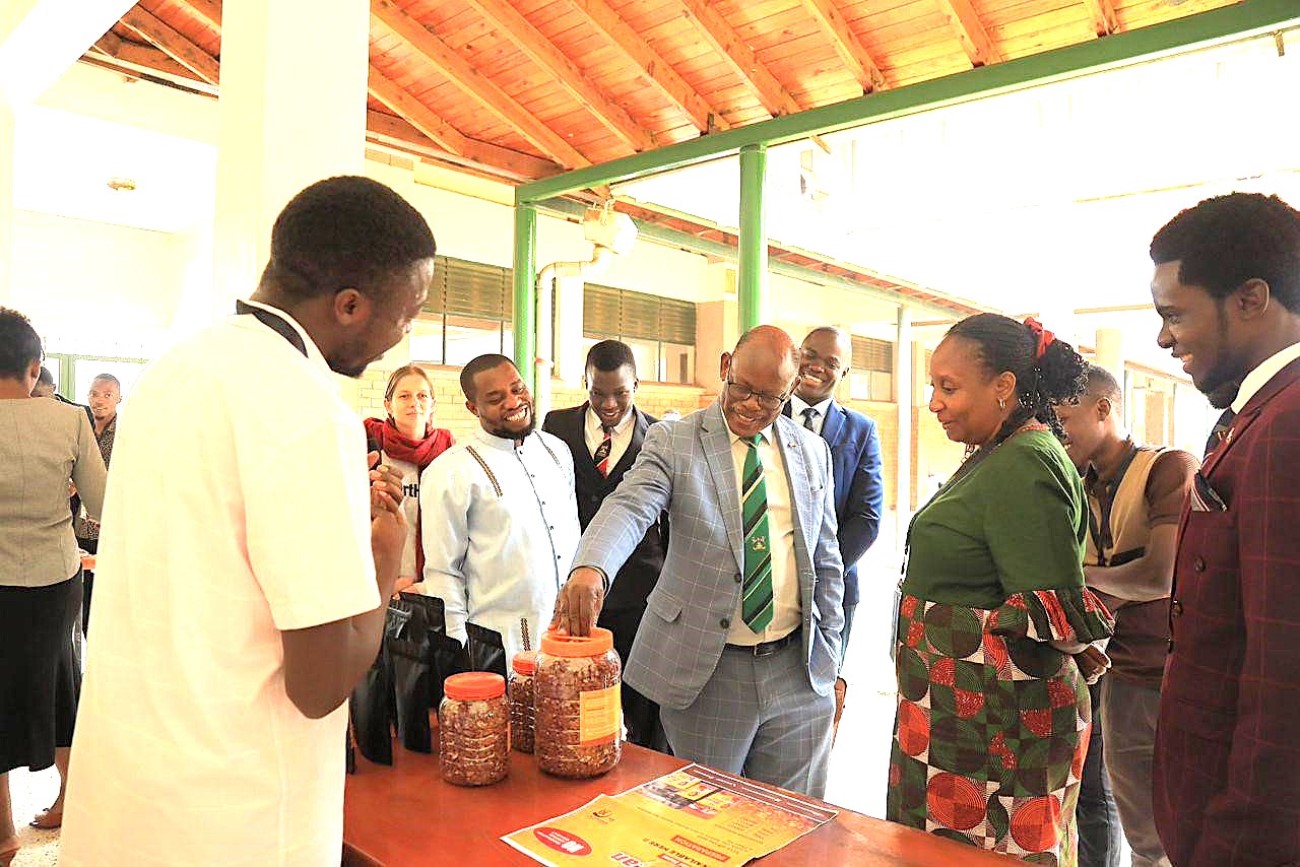
Most notably, the event was honored by the presence of the Vice Chancellor of Makerere University Prof. Barnabas Nawangwe. The Vice Chancellor commended the revitalization efforts, acknowledging the Centre’s immense potential to incubate hundreds of food-based start-ups and create employment opportunities for thousands of graduates. “The Centre is now well-positioned to become a flagship platform for innovation, employment creation, and agro-industrial development in Uganda and beyond. Makerere University remains committed to supporting such initiatives that align with national priorities and global development goals.”
The event featured the unveiling of the operational framework for the revitalized Centre, highlighting its commitment to innovation, entrepreneurship, and practical graduate training. Stakeholders in attendance expressed enthusiasm and pledged support for future collaboration, research, and product development initiatives aligned with national development priorities. The event also provided a platform to deepen partnerships with private sector actors and development organizations, reinforcing confidence in the Centre’s potential to serve as a national model for university-led incubation.
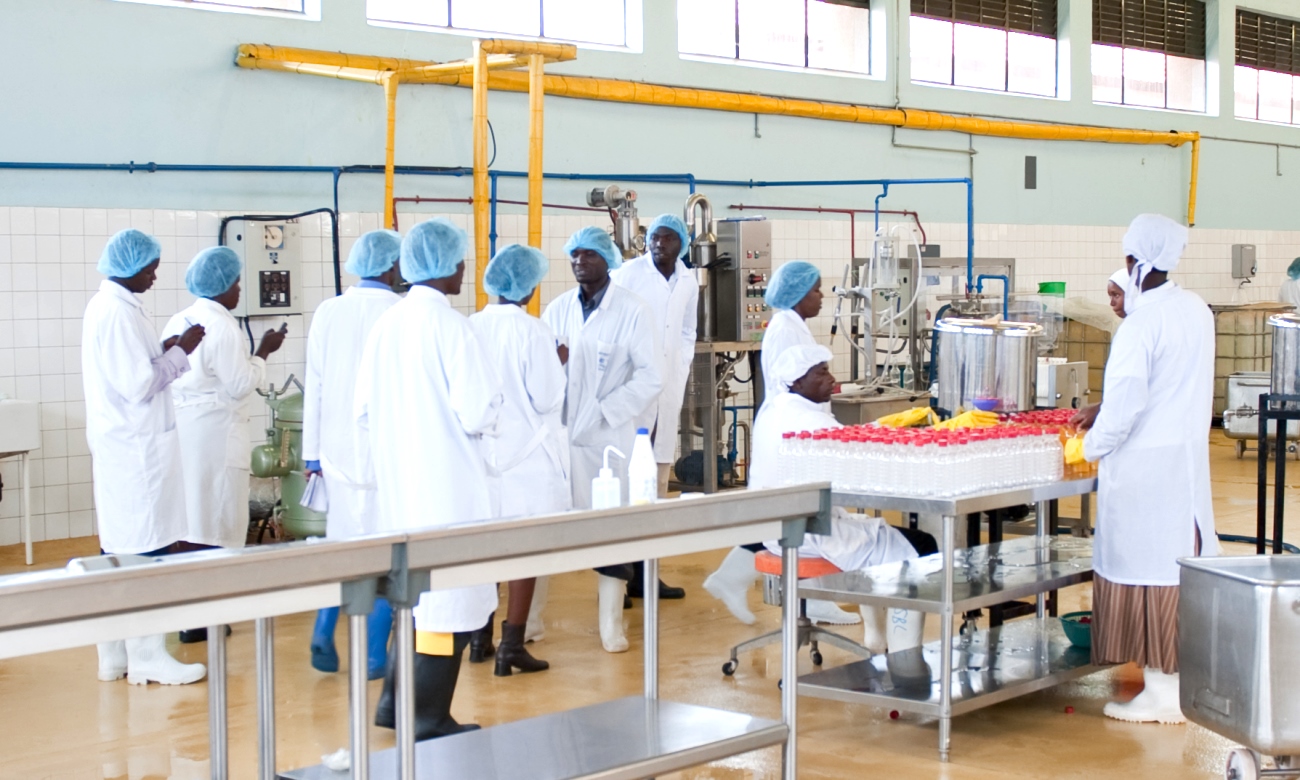
Agriculture & Environment
SophiA Project Upgrades Medical Infrastructure at Buvuma Health Centre IV, Trains Technicians for Maintenance Works
Published
6 days agoon
July 9, 2025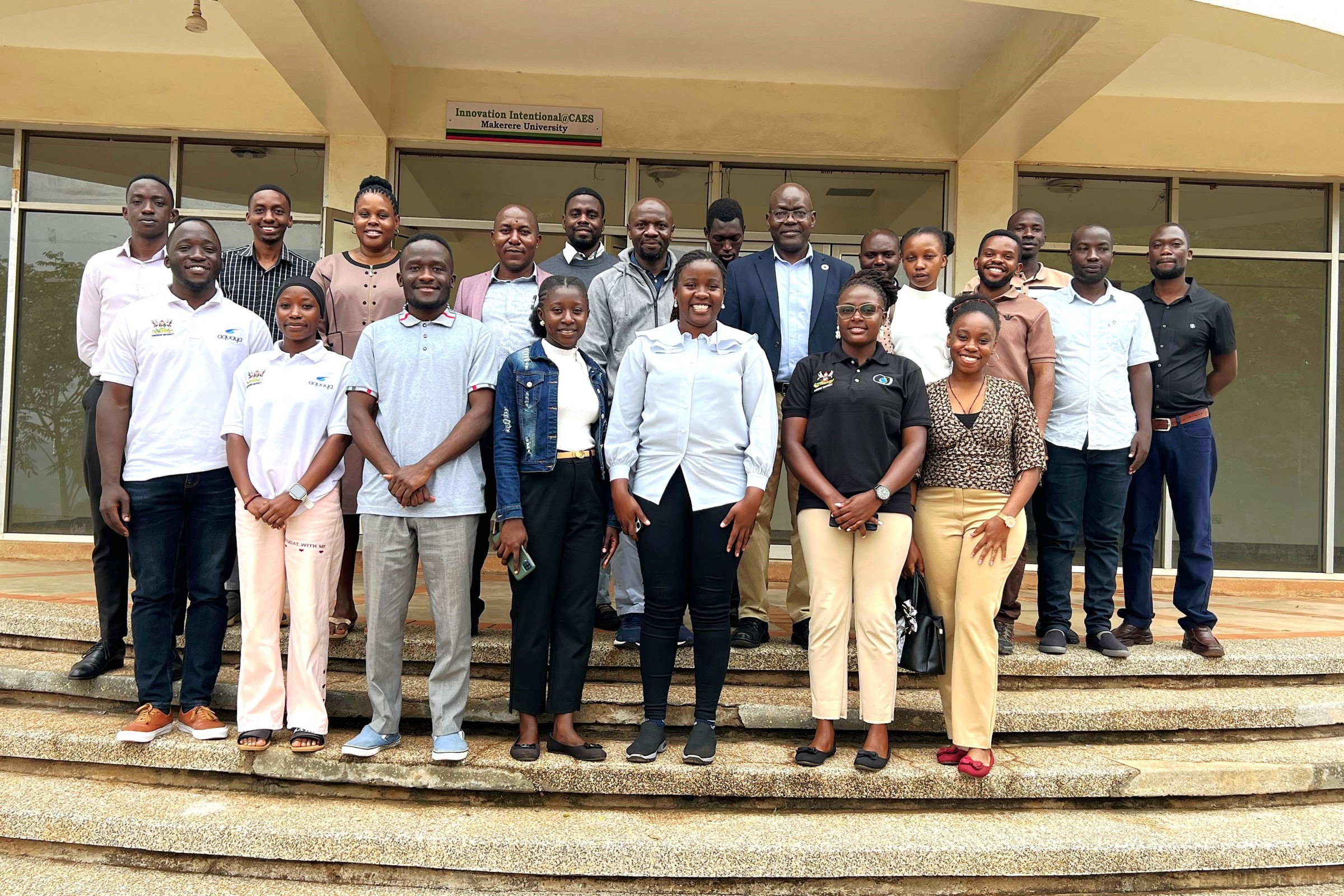
Overview of the Sustainable Off-Grid Solutions for Pharmacies and Hospitals in Africa (SophiA) Project
Despite ongoing urbanization across Africa, the majority of the population still resides in rural and remote areas, where infrastructure development remains limited. These regions face significant challenges such as lack of access to healthcare, education, clean water, and reliable electricity, contributing to higher rates of illness and poverty compared to urban centres. According to reports, Sub-Saharan Africa has approximately 120,000 public health facilities (22,000 hospitals and 98,000 health posts), of which around 26% lack any electricity access, and only 28% have reliable power supply.
Access to good healthcare is critical for sustainable development. However, many rural medical centres operate under harsh conditions – using polluted water, lacking cooling for medicines, and facing poor sanitation – largely due to unreliable electricity and water supply. Although half of the population in Sub-Saharan Africa lacks electricity, the region has abundant renewable energy potential that can be effectively harnessed through off-grid solar photovoltaic (PV) systems.
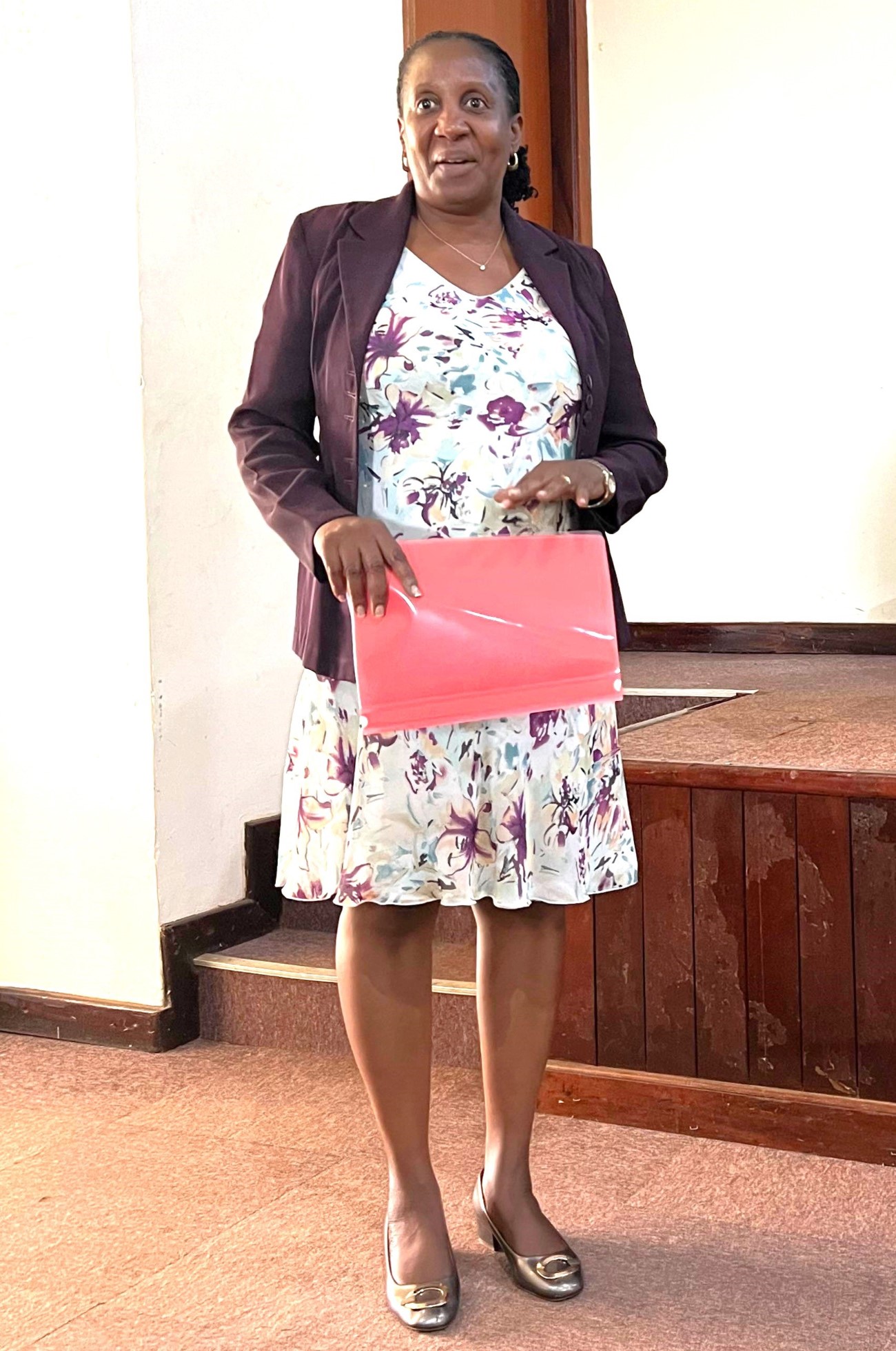
To address the above-mentioned challenges facing the African Continent, Makerere University in partnership with 13 organizations across Europe and Africa developed a project titled, “Sustainable Off-grid solutions for Pharmacies and Hospitals in Africa (SophiA)”. The five-year project that began on 1st October 2021 is funded by the European Union (Project: 101036836 – SophiA – H2020-LC-GD-2-3-2020). At Makerere University, the project is coordinated by Dr. Nicholas Kiggundu, Associate Professor in the Department of Agricultural and Biosystems Engineering, College of Agricultural and Environmental Sciences (CAES).
Piloted in Burkina Faso, Cameroon, Malawi, and Uganda, SophiA aims to provide sustainable off-grid energy solutions to rural and remote health facilities, fostering economic growth and ensuring equitable access to energy and healthcare. Using various technologies, such as photovoltaics, solar thermal, electrical and thermal storage, water treatment and natural refrigerants with low global warming potential, SophiA has developed and manufactured locally innovative, modular, affordable and efficient solar powered systems for providing:
- Safe and clean drinking water, free of bacteria and viruses, and deionised water for medical purposes;
- Hot water and steam production for thermal requirements of the hospitals;
- Cooling of medicines and food at +5°C;
- Low temperature storage of blood plasma and vaccines at -30°C;
- Ultra-low temperature storage of sensitive medication (e.g. some Covid-19 or Ebola vaccines) at -70°C.
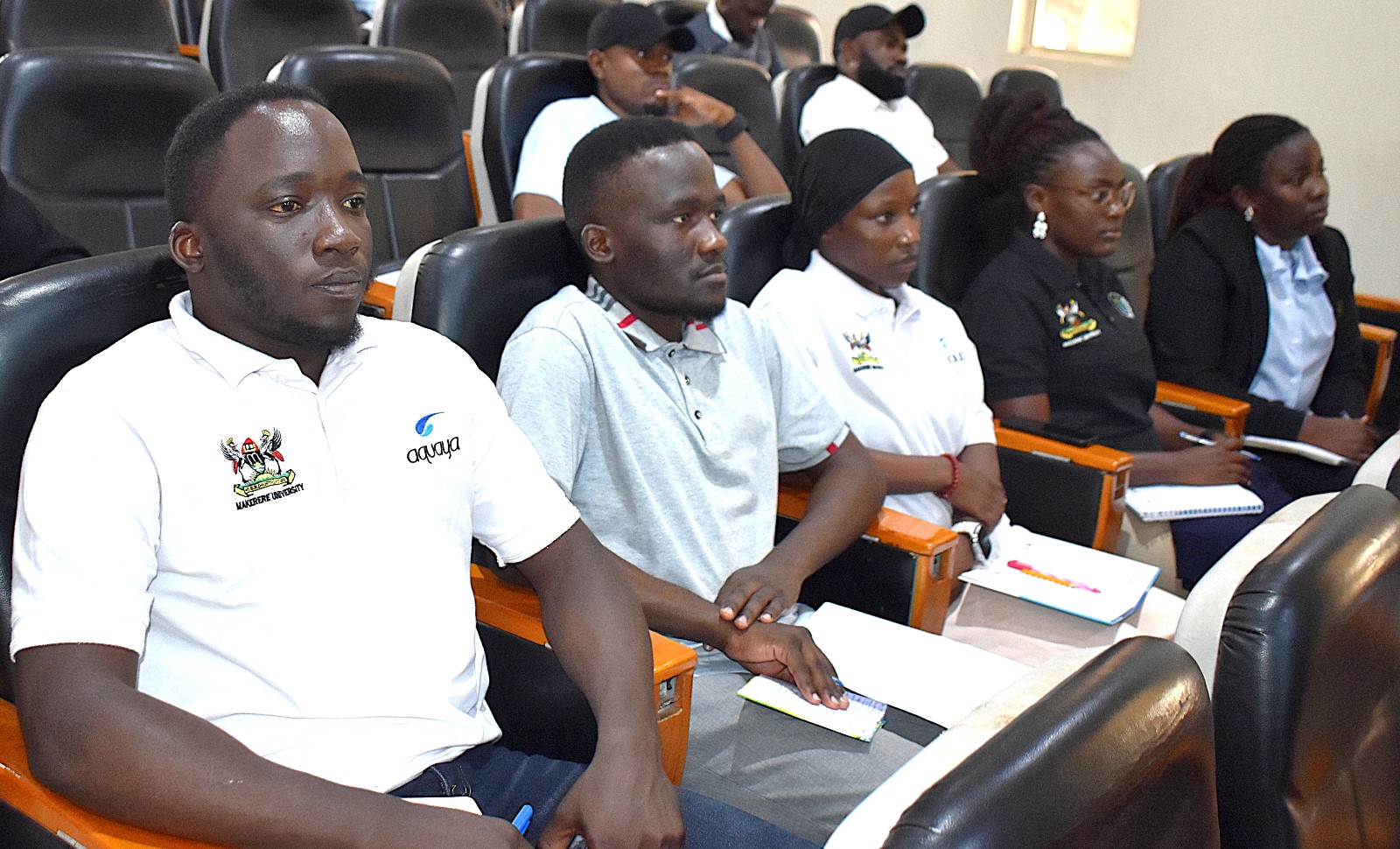
In addition, PV MedPort, a simple and 100% solar-powered solution has been developed and tested as a mobile health care station in small remote areas in 4 different geographical conditions in Africa. The SophiA system has been manufactured in Africa and will provide, for the first-time, innovative solutions based on climate-friendly natural refrigerants to cover cooling demand for three different temperature ranges (-70°C, -30°C and +5°C). The system has been tested and demonstrated at four rural hospitals in remote regions throughout the African continent covering the major geographical regions and different climatic conditions in Burkina Faso, Cameroon, Malawi and Uganda.
SophiA Project initiatives in Uganda
In Uganda, all Health Centre IV hospitals with surgical theatres have been connected to the national grid except Buvuma Health Centre IV, which serves over 120,000 people scattered across 52 islands. Recognizing this gap, the Ministry of Health selected Buvuma Health Centre IV for the SophiA project to demonstrate sustainable off-grid solutions.
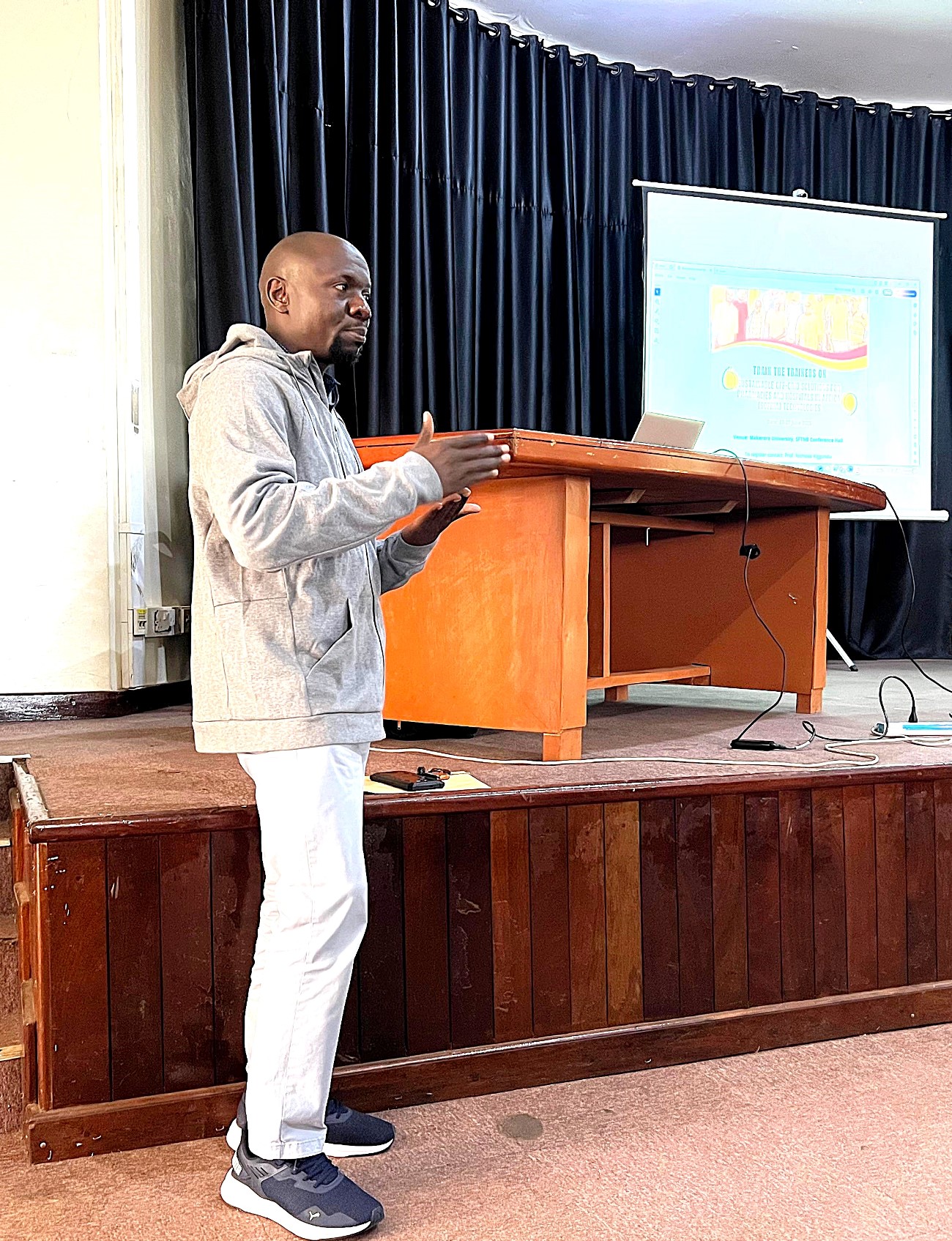
The SophiA System at Buvuma Health Centre IV provides the following services:
- Off-grid electricity supply
- Safe, clean drinking water for patients, staff, and the community
- Hot water and steam systems crucial for maternal care
- Solar-powered cooking and meal preparation
- Cooling systems for surgery and intensive care units
- Refrigeration for medicines at +5°C, blood plasma storage at -30°C, and ultra-low temperature storage (-70°C) for sensitive vaccines such as those for COVID-19 and Ebola
Training of Trainers Workshop
As the SophiA project approaches completion in September 2025, it is vital to establish a skilled pool of technicians capable of handling maintenance and minor repairs of the system components, including solar panels, water treatment units, generators, batteries, and cooking kits.
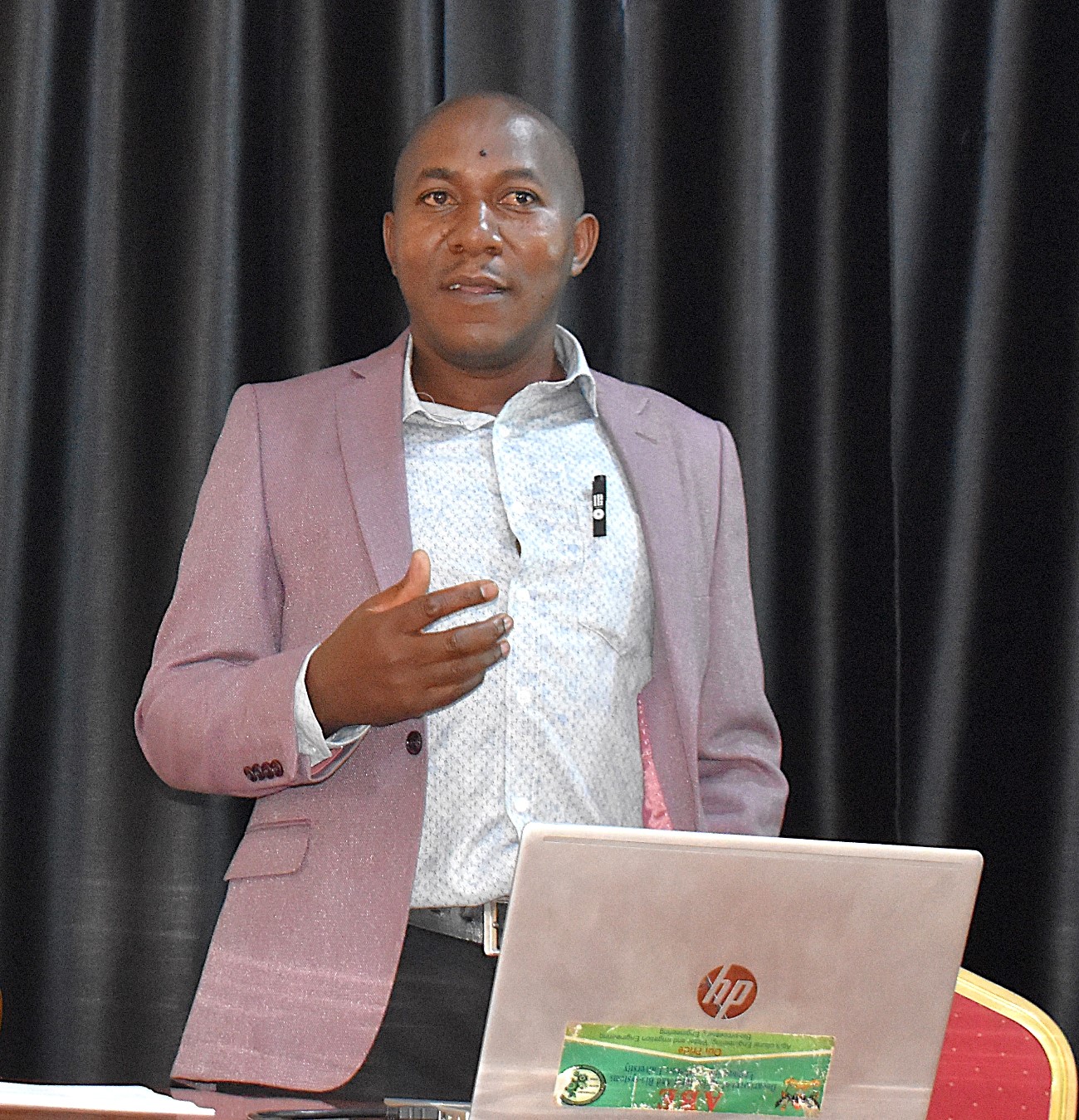
From June 23 to 27, 2025, Makerere University hosted a comprehensive Training of Trainers workshop. The training programme encompassed a diverse range of topics delivered by subject matter experts from institutions, including Makerere University (Department of Agricultural and Biosystems Engineering – CAES, and the College of Engineering, Design, Art and Technology – CEDAT), Hochschule University of Applied Sciences, and Busitema University. Participants were carefully selected from diverse professional backgrounds, including recent engineering graduates from CAES and CEDAT, Makerere University, University technical staff, personnel from Kyambogo University, officials from Buvuma District Works and Health Departments, and electricians from Kampala City. The training sessions were conducted at Makerere University and Buvuma Health Centre IV Hospital.
Training Modules Included:
- Sustainable energy systems and their practical applications
- Energy generation and storage technologies
- Solar water heating: design, operation, maintenance, and performance optimization of solar water heaters, crop dryers, and concentrating solar heaters
- Solar PV technologies in Uganda: cell technology, system design, operations, maintenance, and hands-on practicals for standalone and grid-connected systems
- Public health implications of water quality
- Water treatment and quality management, including protocols, parameters, and case study on the MCDI treatment system
- Water quality testing methodologies
- Introduction to sustainable refrigeration and cooling technologies
- Environmental impact and safety considerations for refrigerants
- Refrigeration cycles and component overview
- Life cycle assessment of SophiA technologies
- Thermal energy storage within the SophiA system
- Steam as a productive energy source
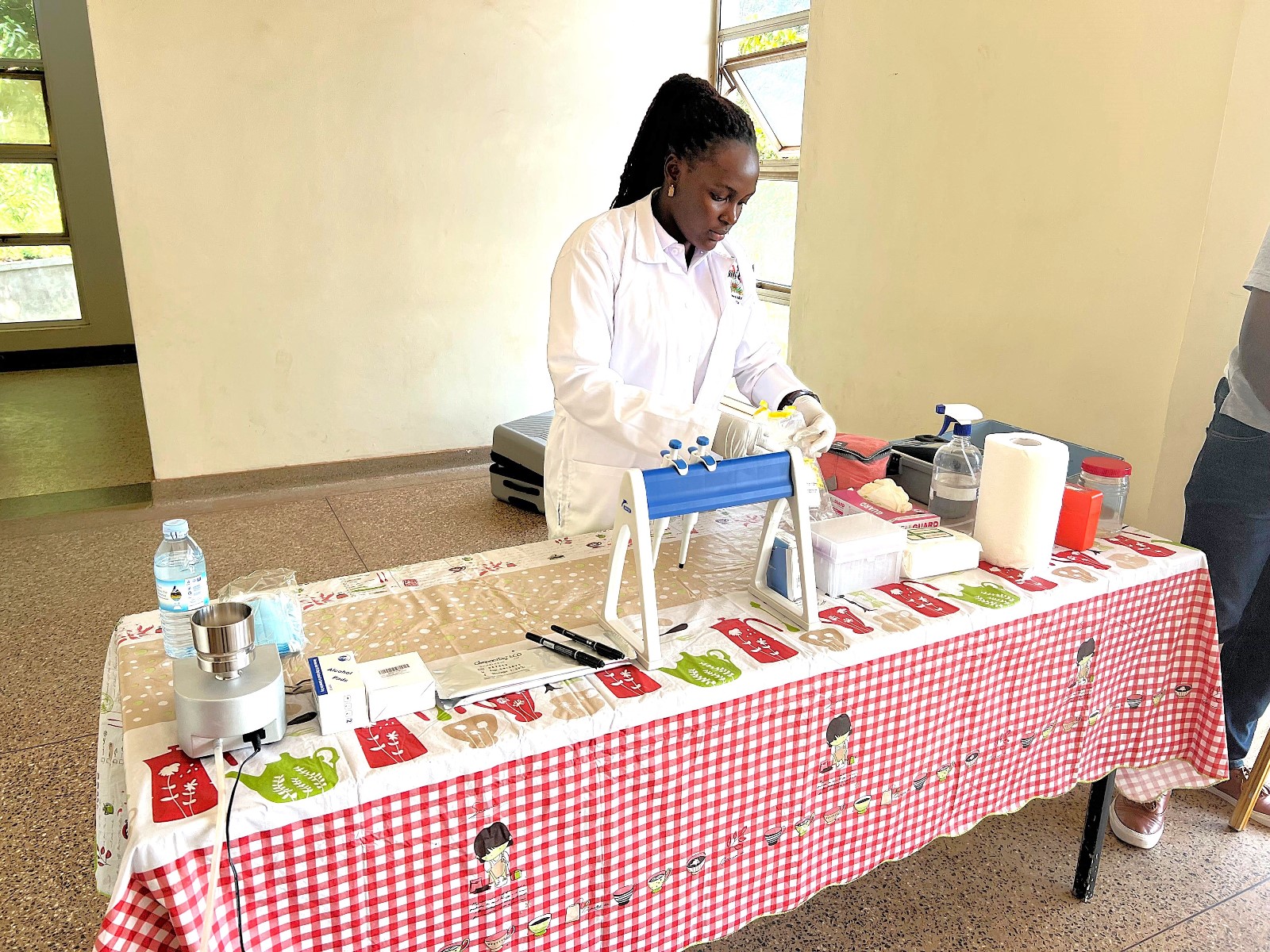
The Training Sessions
Day One: Introduction to foundational concepts in solar energy technologies
The first day of the SophiA Train the Trainers Workshop focused on building foundational knowledge in sustainable and solar energy systems. Led by Dr. Peter Tumutegyereize and Dr. Francis Mujjuni, participants explored a range of technologies and applications critical to clean energy deployment.
Key topics included:
Sustainable Energy Systems: Introduction to renewable energy systems including bioenergy, hydro, wind, geothermal, hydrogen fuel cells, and battery storage.
Solar Radiation & Geometry: Understanding solar constants, irradiance, and the impact of atmospheric conditions on solar performance.
Solar Thermal Technologies: Detailed look at solar water heating systems (FPCs and ETCs), maintenance, sizing, and solar dryers for agricultural and industrial use.
Photovoltaic (PV) Systems: Working principles, types of PV cells, performance factors, and diagnostics. Practical testing techniques and metrics like Voc, Isc, MPP, and PR were discussed.
Simulation & Application: Olivia Nakiwanuka demonstrated a PVsyst-based simulation of a 2.55 kWp standalone system for a conference hall, showing a high solar fraction (97.88%) and low LCOE (USD 0.03/kWh).
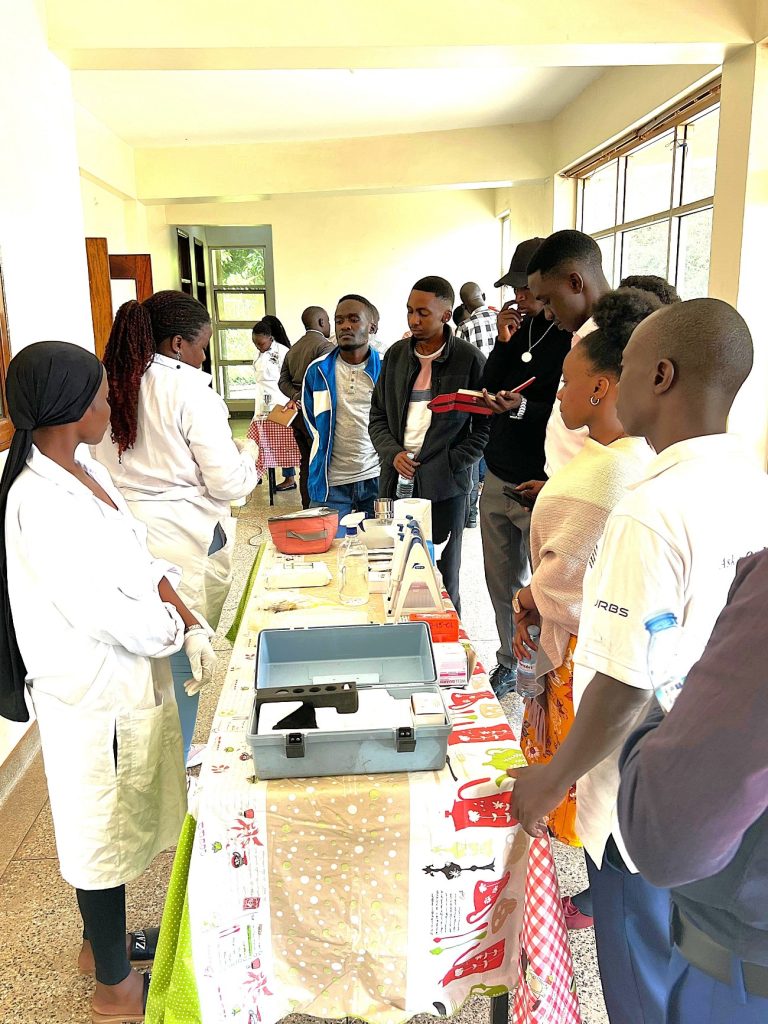
The sessions emphasized practical skills, performance analysis, and real-world application, equipping participants to train others and support solar adoption, especially in rural and off-grid settings.
Day Two: Water Treatment Technologies
The second day focused on water treatment technologies relevant to low-resource healthcare settings. Facilitated by Sneha De and Mr. Duc Dinh Ngoc from Hochschule Karlsruhe University, sessions covered technical, environmental, and operational challenges, with contributions from Dr. Joshua Wanyama on water quality management and Dr. Prossie Nakawuka on practical water testing.
Key challenges addressed included unreliable water supply and contamination in healthcare facilities, emphasizing the need for decentralized water treatment, especially in rural areas.
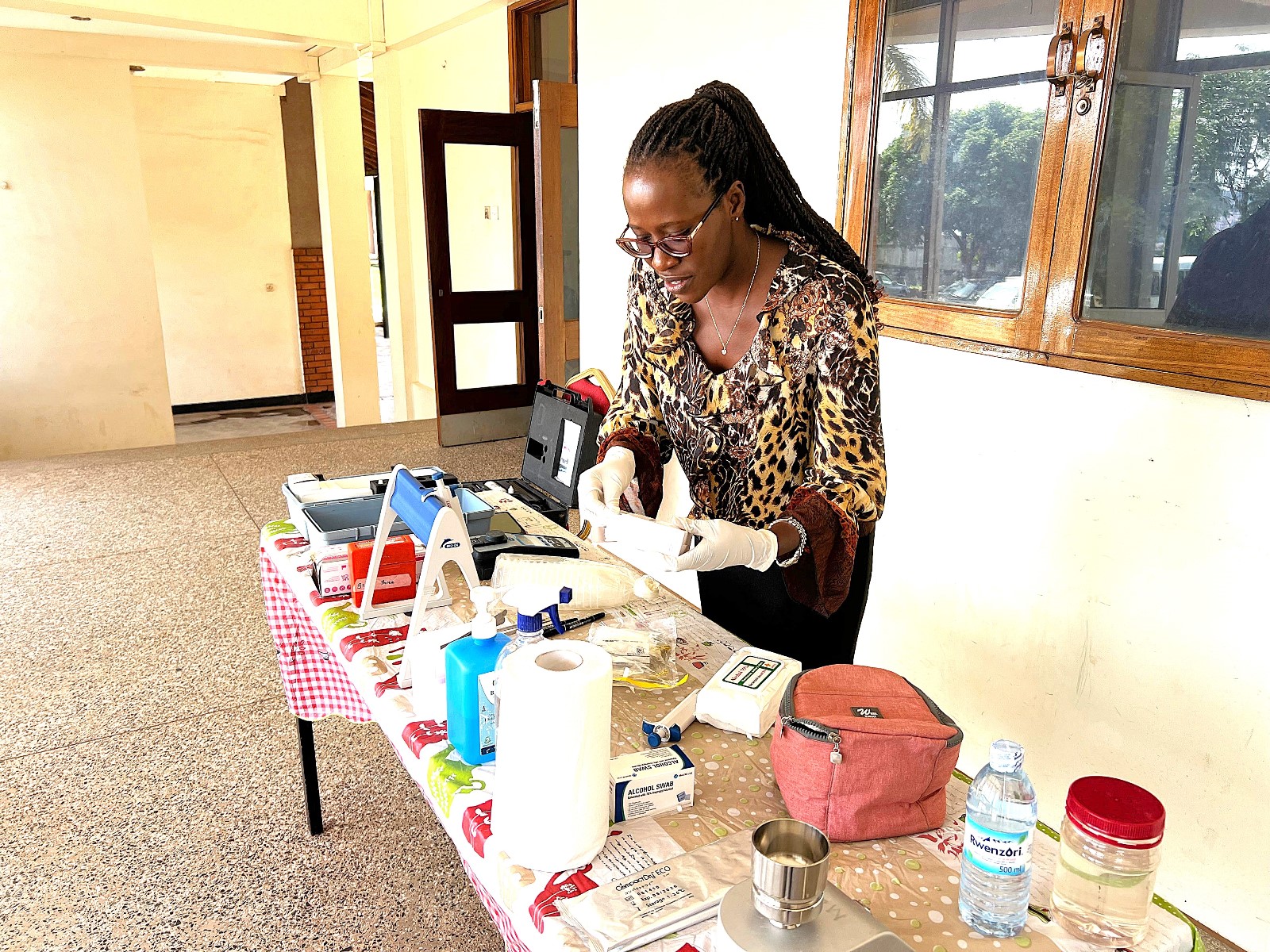
Sneha De reviewed biological and physical/chemical water treatment methods, highlighting technologies such as activated sludge, filtration, membrane bioreactors, and advanced disinfection techniques. The SophiA modular water treatment system, integrating ultrafiltration and membrane capacitive deionisation (MCDI), was introduced as a scalable solution for producing safe drinking and deionised water for medical use.
Mr. Duc Dinh Ngoc trained participants on the MCDI technology, an energy-efficient method for salt and fluoride removal suitable for low-salinity water.
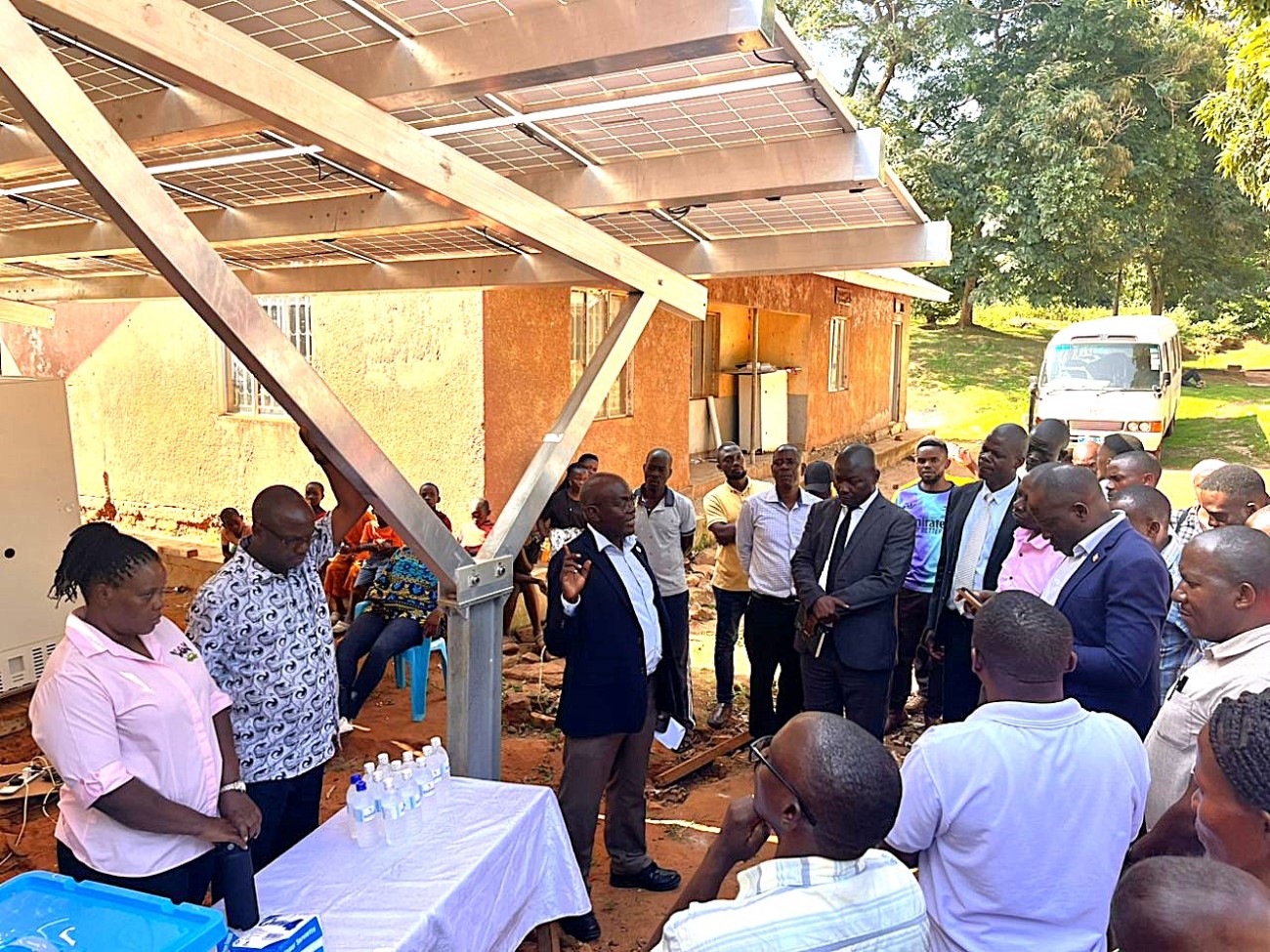
Dr. Joshua Wanyama discussed the water quality management protocols, outlining key physical, chemical, and biological water parameters and monitoring strategies, including modern IoT-based tools, to ensure water safety and public health.
The day concluded with a hands-on lab session by Dr. Prossie Nakawuka, where participants practiced water quality testing using turbidimeters, incubators, and filtration techniques.
Overall, Day Two combined theoretical insights, technology demonstrations, and practical skills, preparing participants to implement sustainable water treatment and quality management systems in healthcare environments.
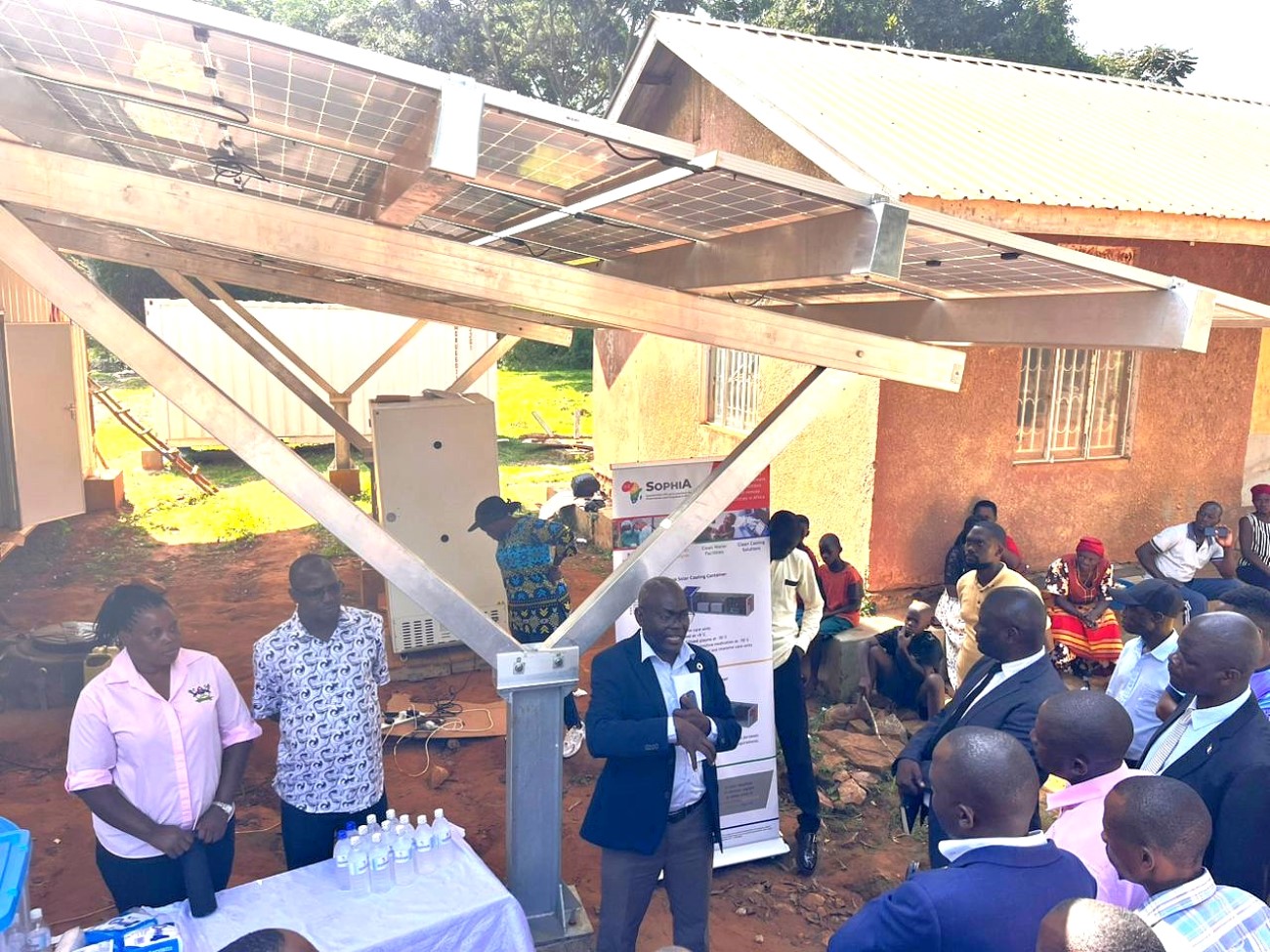
Day Three: Refrigeration and Cold Storage
The third day of the SophiA workshop focused on sustainable refrigeration and cold storage technologies tailored for healthcare in Sub-Saharan Africa. Experts discussed energy-efficient, climate-friendly cooling solutions vital for vaccine storage, medicines, and diagnostics, especially in off-grid and rural settings.
Key highlights included the introduction of solar-powered and biomass-based refrigeration systems, thermal energy storage methods, and the use of natural refrigerants like propane, ammonia, and CO₂ as environmentally safer alternatives. Presentations emphasized the critical role of refrigeration in healthcare and the urgent need to replace harmful chemicals with sustainable technologies.
Sessions covered real-world applications such as the SophiA cooling containers in Burkina Faso, safety protocols for flammable refrigerants, and the environmental and economic benefits of solar refrigeration systems assessed through life cycle analysis.
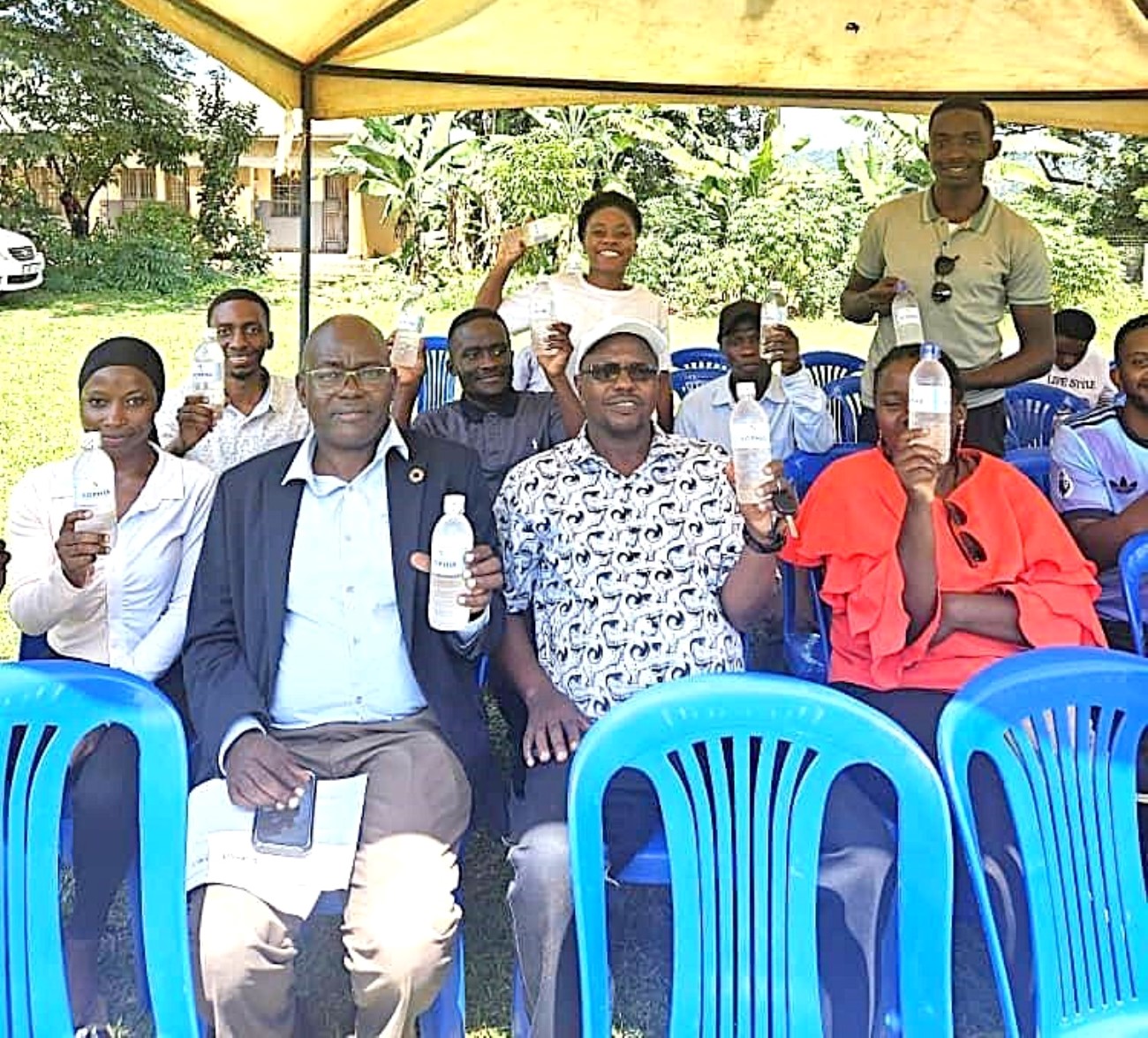
The day ended with an interactive quiz and discussion, reinforcing learning and encouraging participants to apply sustainable cooling practices in their communities.
Day Four: World Refrigeration Day & Field Visit to Buvuma Island
The fourth day of the SophiA Train the Trainers workshop was dedicated to the celebration of the World Refrigeration Day and a field excursion to Buvuma Island, providing participants with a unique opportunity to witness the SophiA system in action. The day was coordinated by Dr. Sarah Bimbona and Dr. Nicholas Kiggundu, who led the delegation to Buvuma Health Centre IV, the pilot site for the SophiA installation in Uganda.
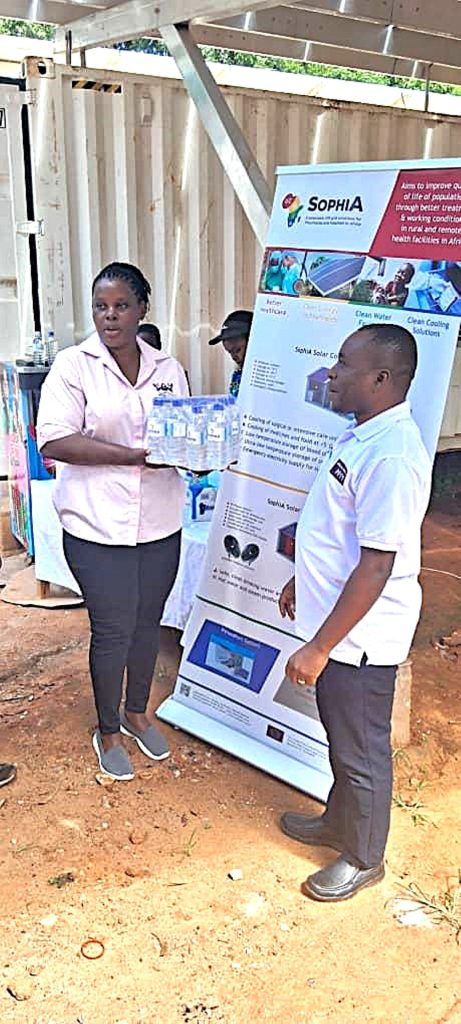
The visit served as both a practical extension of the previous day’s technical sessions and a community engagement event. Participants were able to observe the installed SophiA system, which integrates solar-powered refrigeration, water treatment and steam generation technologies designed for off-grid healthcare settings. During the visit, Dr. Kiggundu provided a detailed briefing to local stakeholders, including representatives from the Buvuma District Local Government, delegates from the Buganda Kingdom, and members of the local community. He explained how the SophiA system will enhance healthcare delivery on the island through reliable cold storage for vaccines and medicines, access to clean drinking water, and steam generated for cooking and use in the maternity wards.
As part of the long-term sustainability plan for the SophiA system, the launch of SophiA Water was announced, an entrepreneurial initiative designed to generate revenue locally for the operation and maintenance of the system.
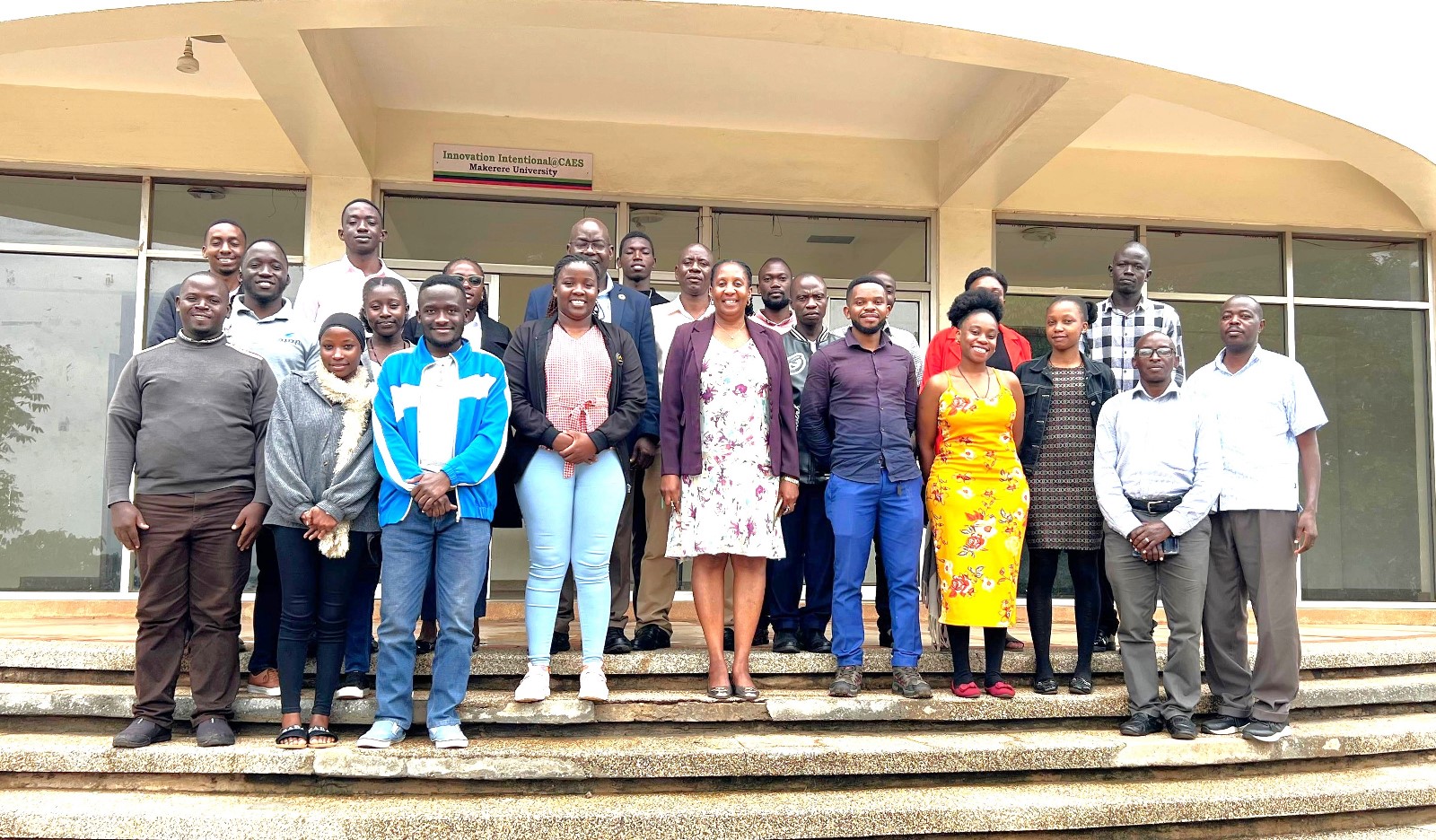
The field trip ended with a certificate awarding ceremony in appreciation of the participants’ dedication and active engagement throughout the training programme.
Agriculture & Environment
APRC Trains Graduate Students & Stakeholders in the Use of the African Agriculture Adaptation Atlas
Published
2 weeks agoon
July 3, 2025
The Agricultural Policy Research Centre (APRC), housed within the College of Agricultural and Environmental Sciences (CAES) at Makerere University, continues to play a pivotal role in shaping Uganda’s agricultural future through evidence-based policymaking. With a mission to ensure that agricultural policies are grounded in empirical research and data, APRC is actively investing in capacity-building initiatives that empower researchers, policymakers, and development actors.
In a significant stride toward building climate resilience in African agriculture, APRC recently organized a two-day intensive training workshop focused on the African Agriculture Adaptation Atlas (AAAA) – a state-of-the-art, web-based decision-support platform that facilitates the integration of climate data into agricultural planning and policy.

The workshop, held on Wednesday 25th and Thursday 26th June 2025 at the School of Agricultural Sciences, Makerere University, targeted two key groups: graduate students on the first day, and university faculty, government officials, and development practitioners on the second. This structure ensured tailored learning experiences for both emerging and seasoned professionals, helping to bridge the gap between academic research and real-world policy implementation.
The African Agriculture Adaptation Atlas (AAAA) is designed to provide dynamic, data-rich visualizations that support informed decision-making in agriculture and food systems across the continent. Through interactive maps and analytical tools, users can explore projected climate impacts, evaluate risks, and identify localized, climate-smart adaptation strategies.

Throughout the sessions, participants received hands-on training in a broad range of AAAA functionalities, including:
- Leveraging the Atlas for research and policy communication: Enhancing the ability of scientists and policy actors to translate complex climate data into actionable insights;
- Assessing projected climate impacts and associated agricultural risks: Essential for forward-looking planning and risk mitigation;
- Identifying climate-smart investment options, with a particular focus on the livestock sector, which is especially vulnerable to climate shocks;
- Analysing gendered vulnerabilities: Examining how climate change disproportionately affects women in agricultural communities;
- Understanding the implications of heat stress on agricultural productivity: Supporting targeted interventions to protect producers and their livelihoods;
- Estimating the economic returns of adaptation strategies: Aiding in prioritizing investments and allocating limited resources effectively.

Prof. Bernard Bashaasha, the APRC Coordinator, emphasized the importance of the training in advancing Africa’s adaptation agenda. “As climate change continues to threaten food security and disrupt livelihoods across the continent, tools like the AAAA, and the skills to use them effectively are essential. They empower decision-makers to craft policies that are adaptive, inclusive, and rooted in science,” he noted.
The workshop was coordinated by Dr. Florence Rwiza, Lecturer in the Department of Agribusiness and Natural Resource Economics at CAES.
More photos from the Training






Trending
-

 Education2 weeks ago
Education2 weeks agoAdmission List to Bachelor of Education External (BED) 2025/26 -Private Sponsorship
-

 General1 week ago
General1 week agoRe-advert: Admission to Undergraduate Programmes 2025/2026
-
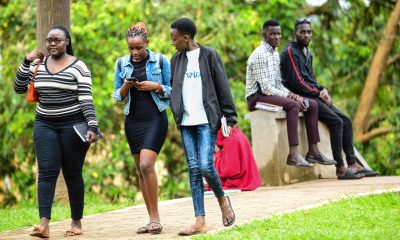
 General2 weeks ago
General2 weeks agoAdmission Lists -Disability and District Quota Schemes 2025/26
-
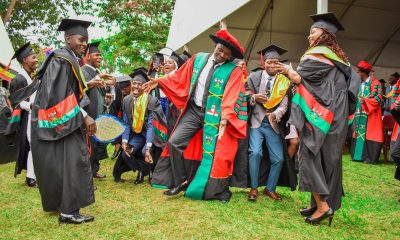
 General2 weeks ago
General2 weeks agoDiploma/Degree Holders Scheme – Self Sponsorship Admission Lists 2025/26
-

 General6 days ago
General6 days agoRe-Advert for Applications for Diploma and Certificate Training
